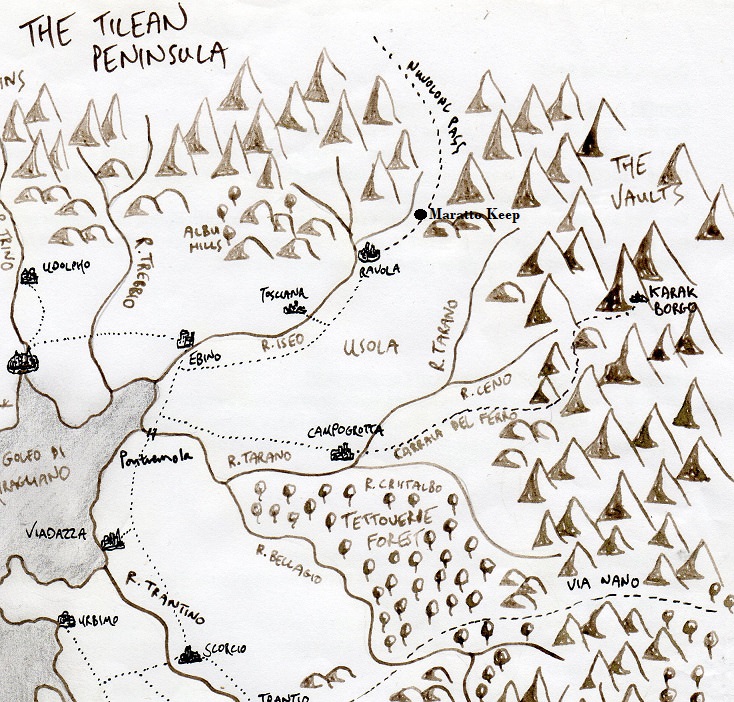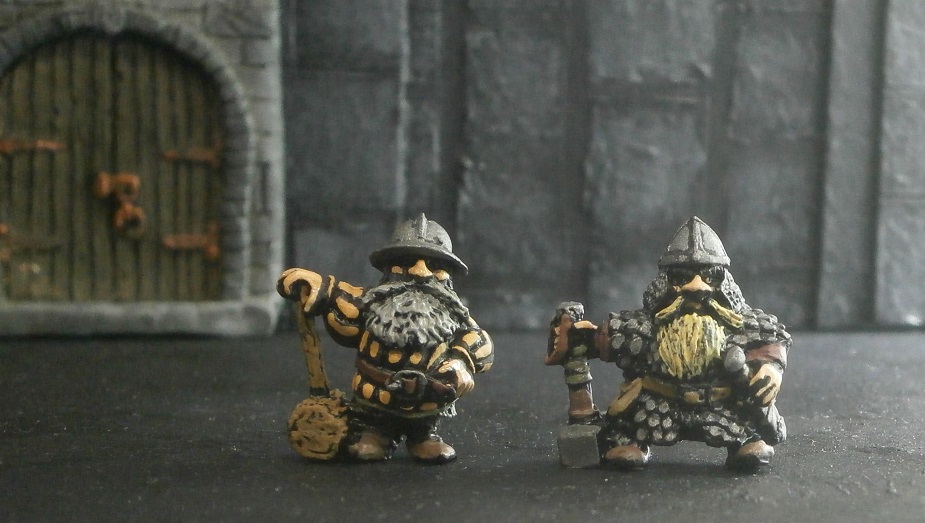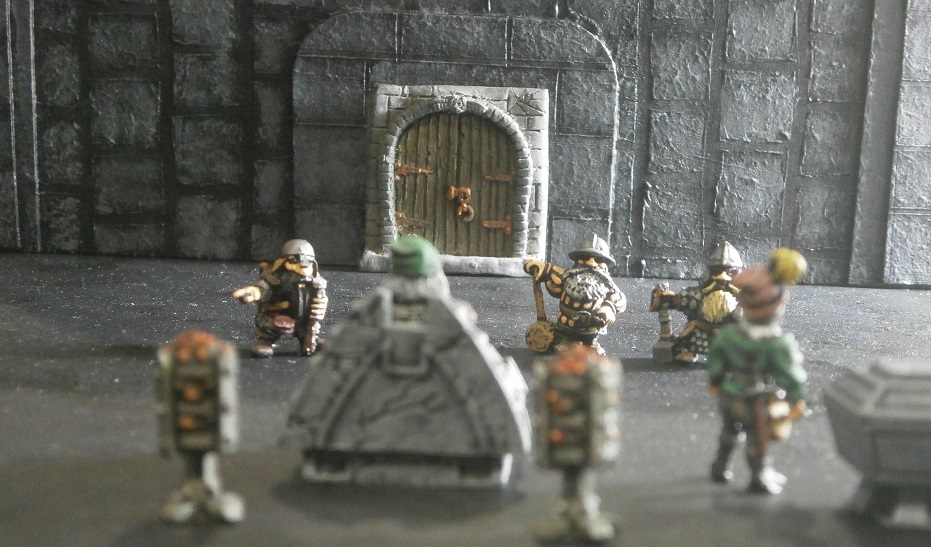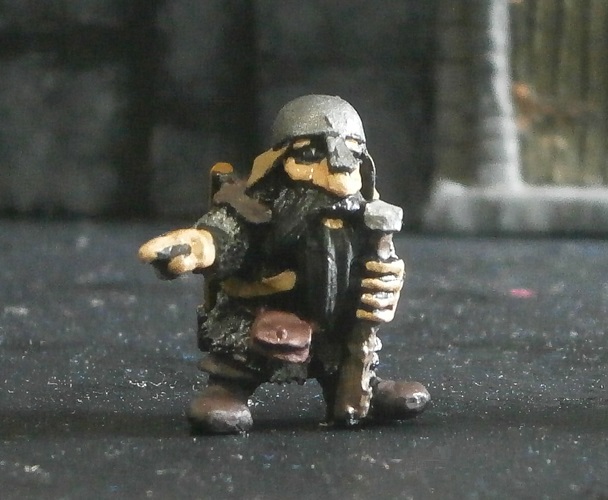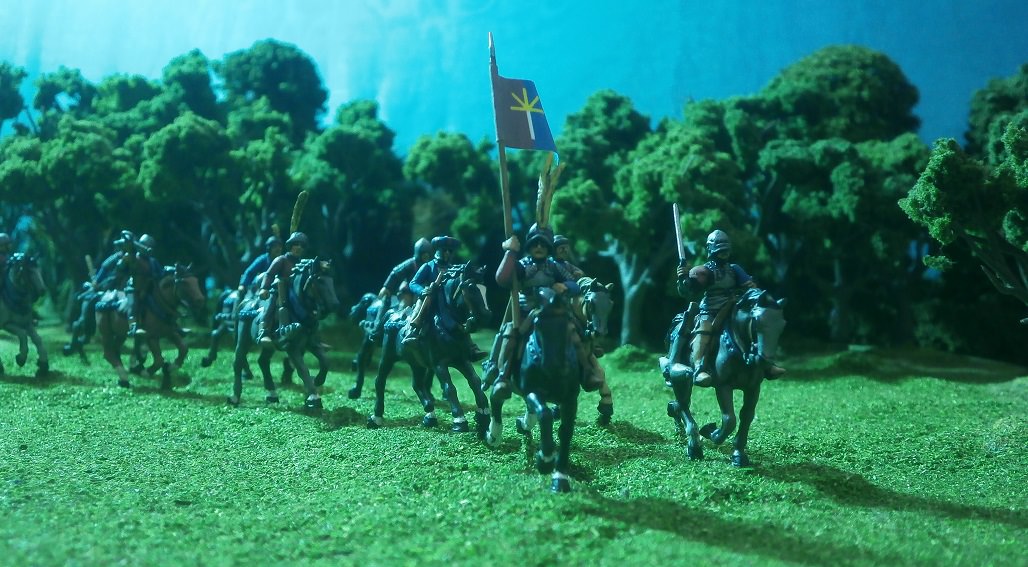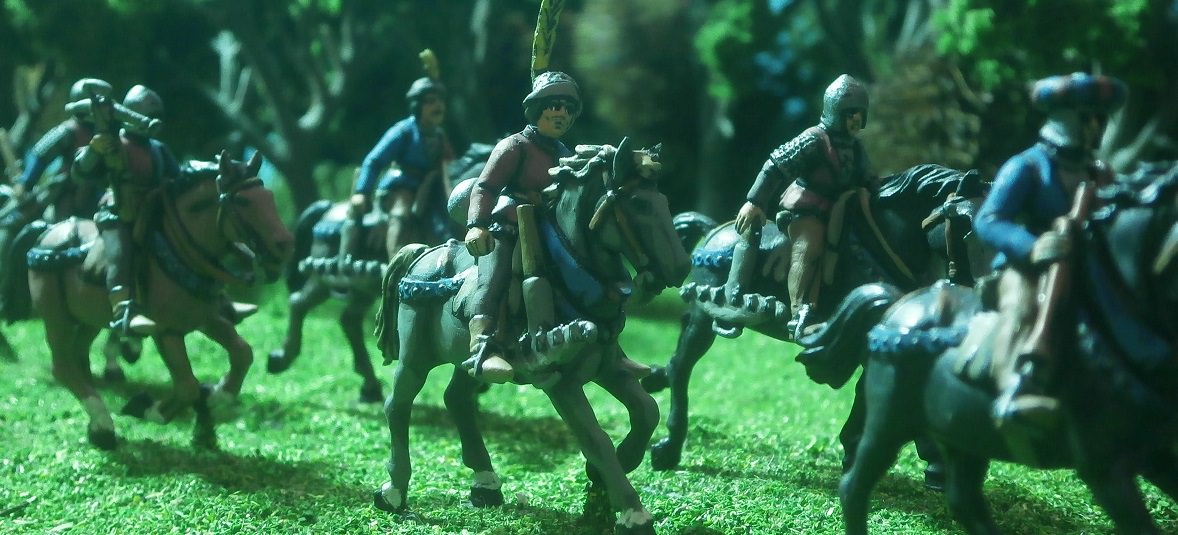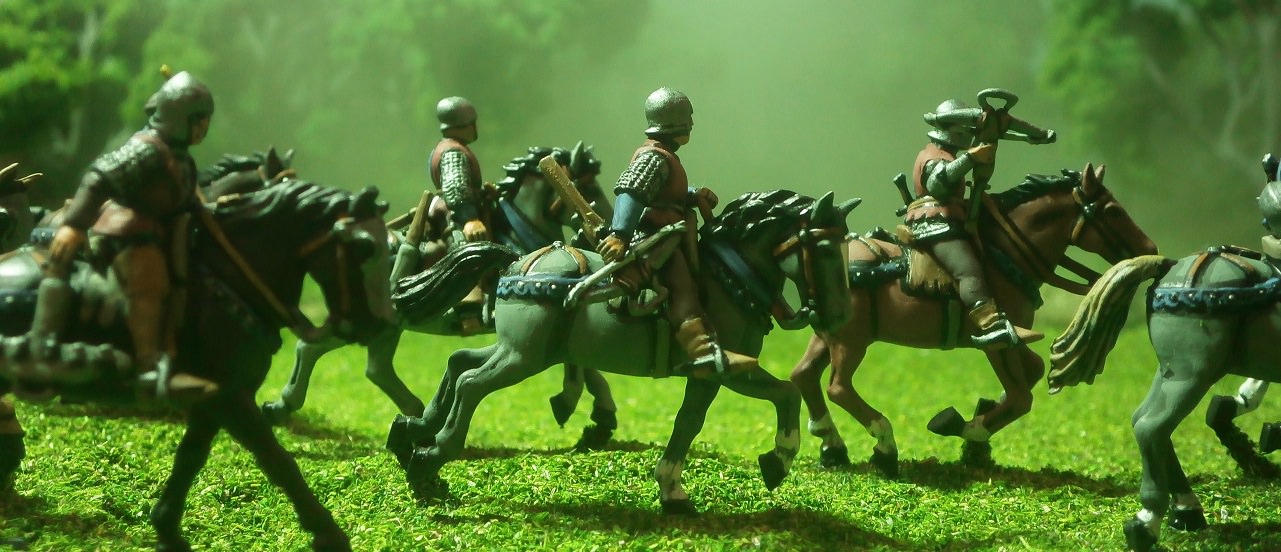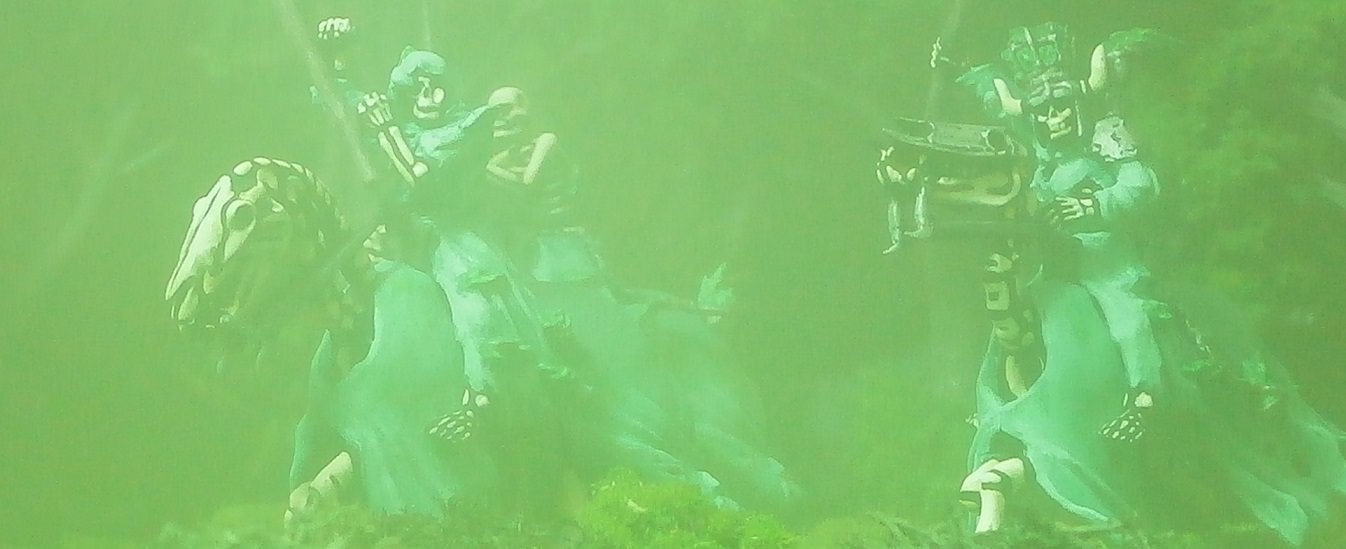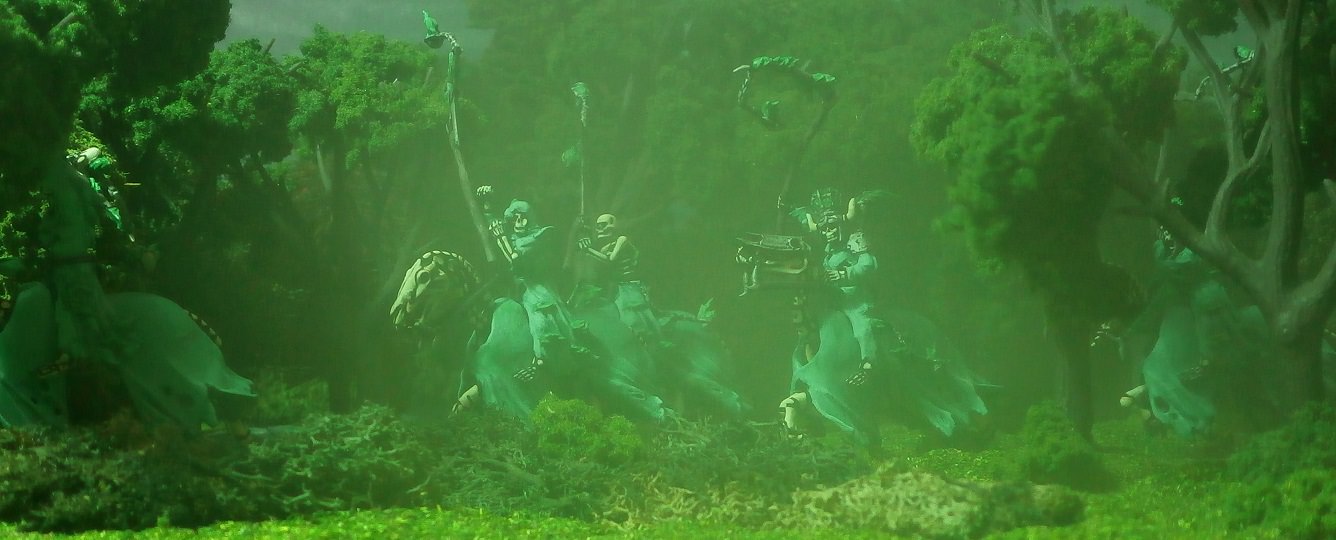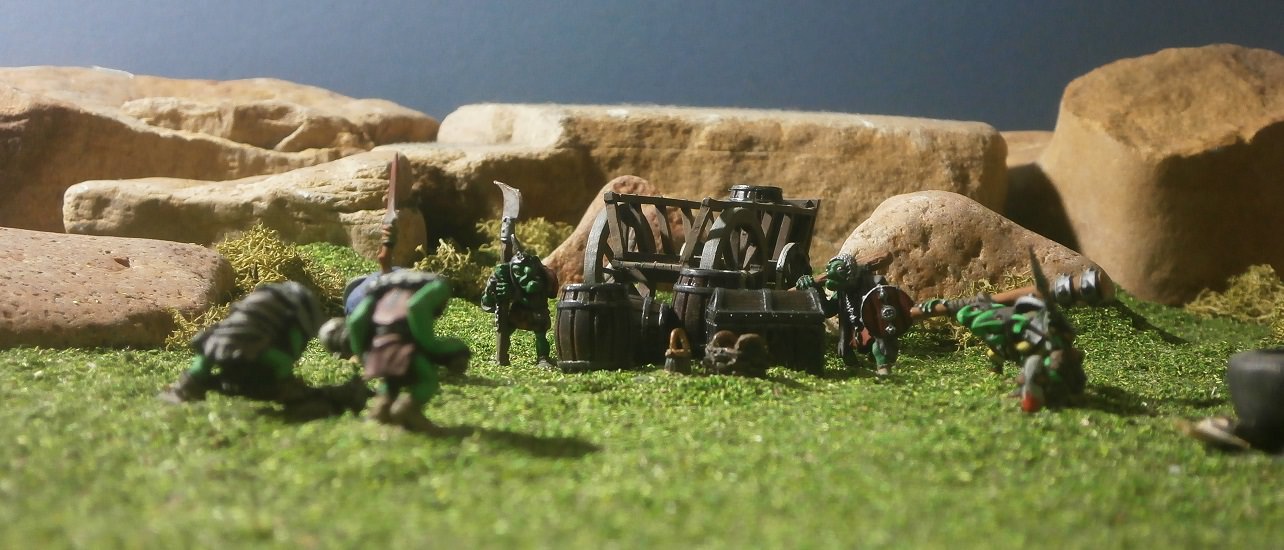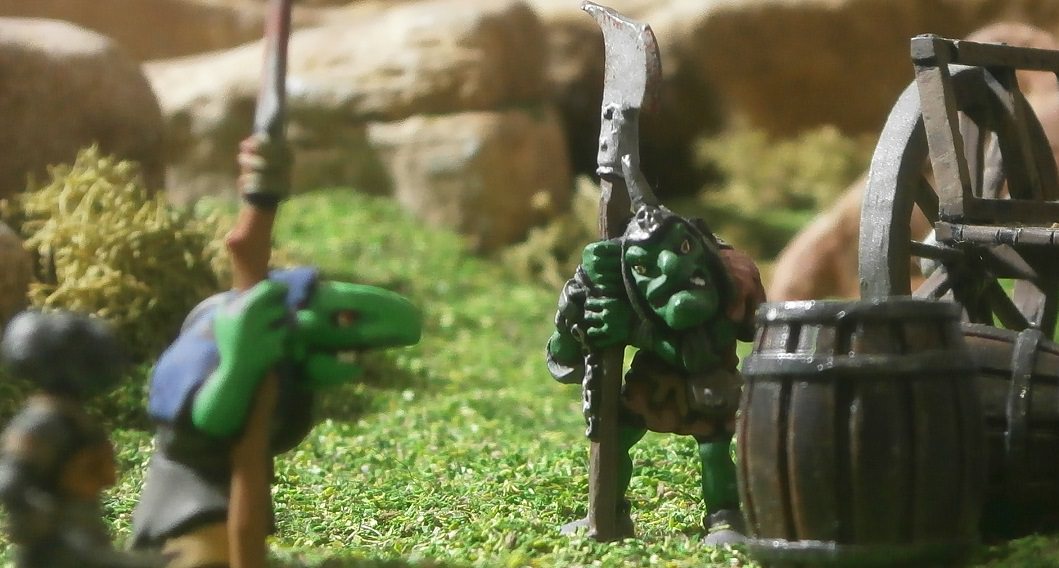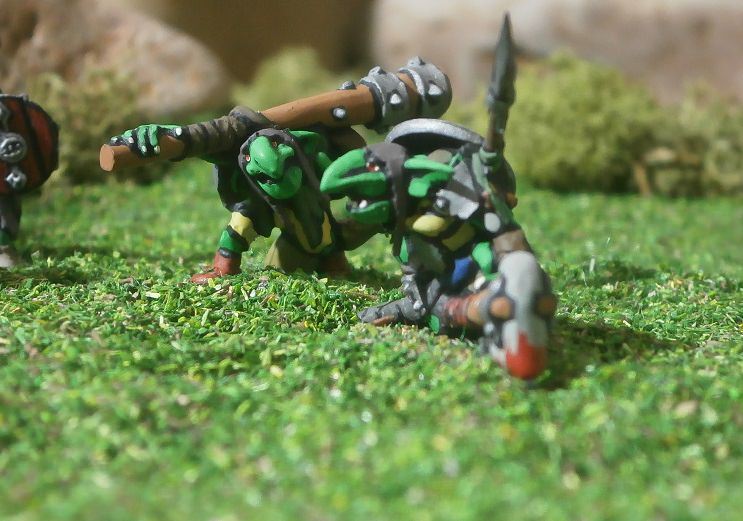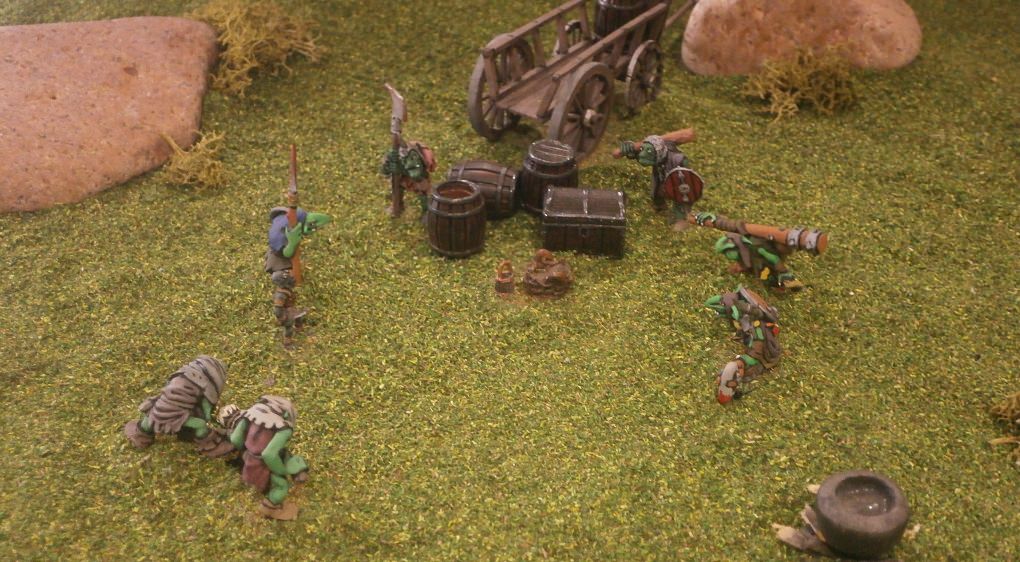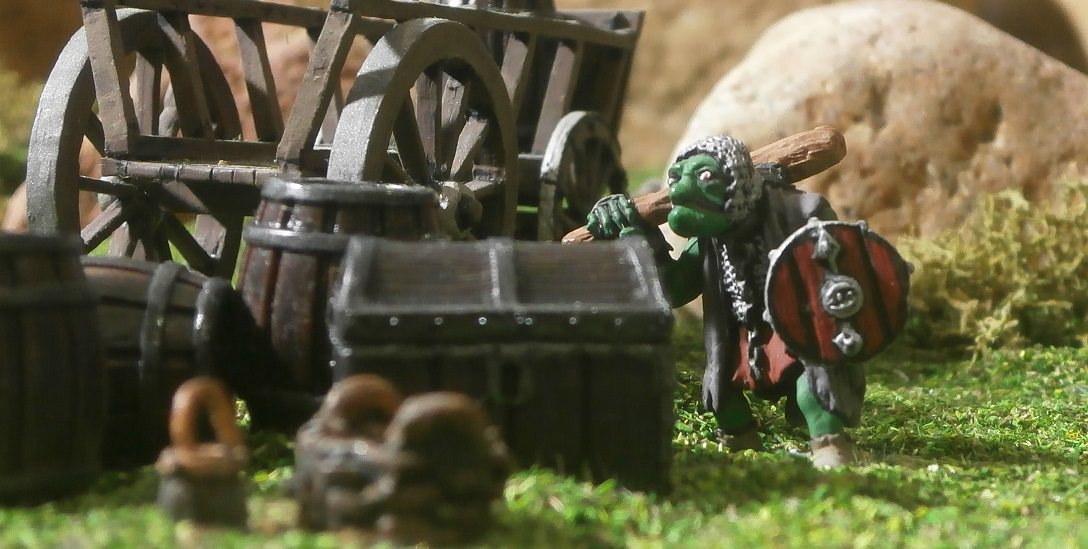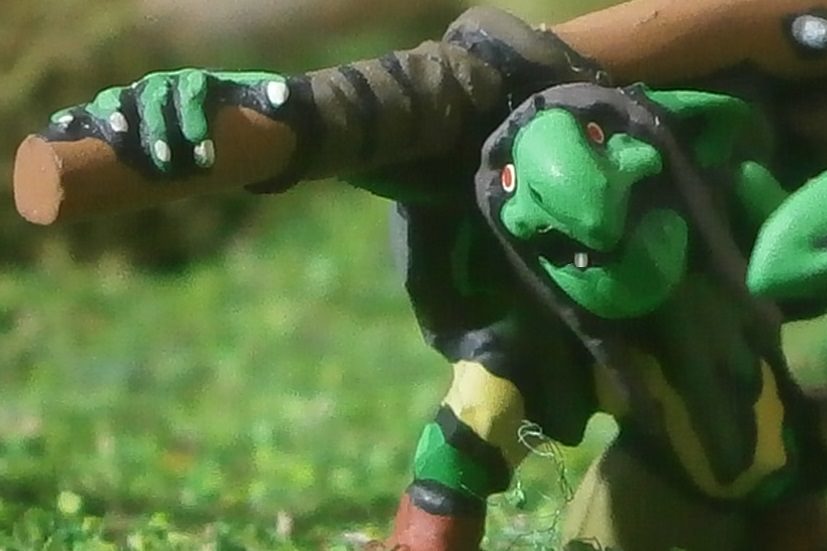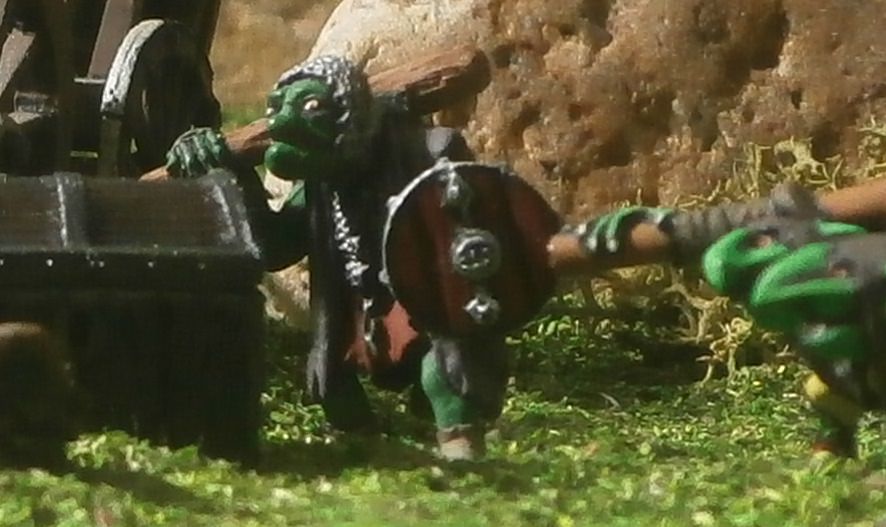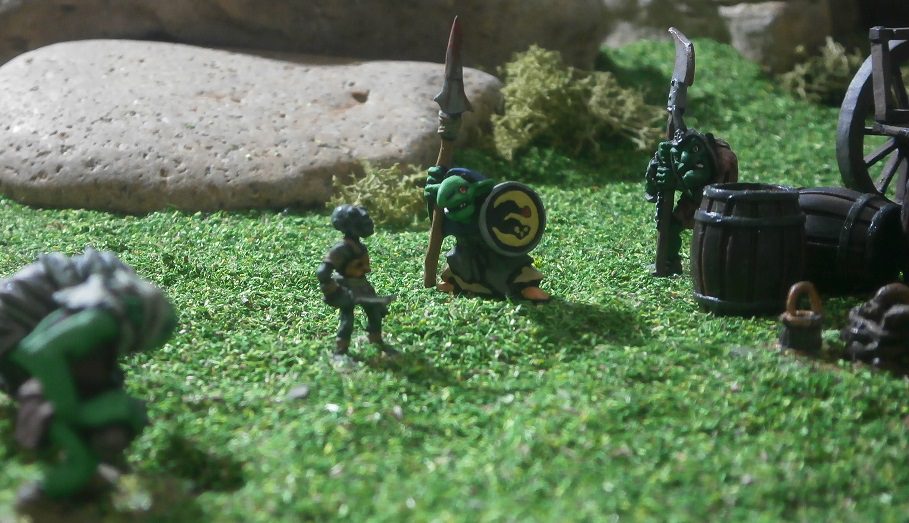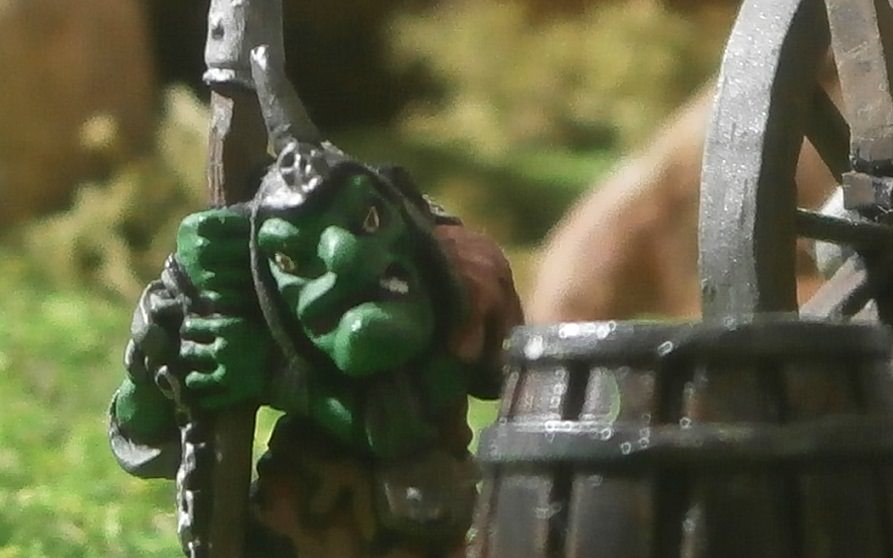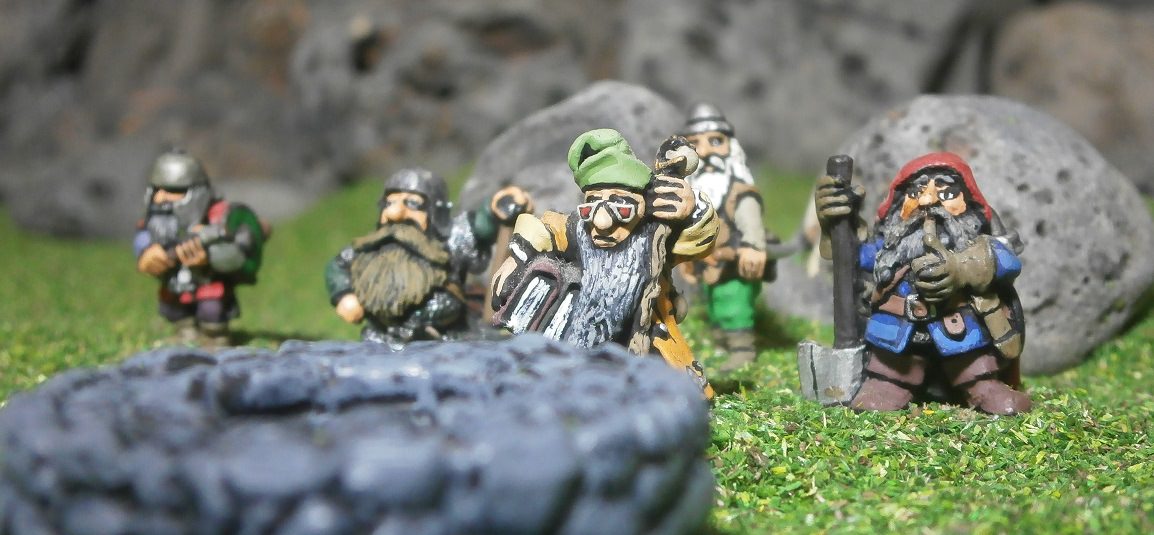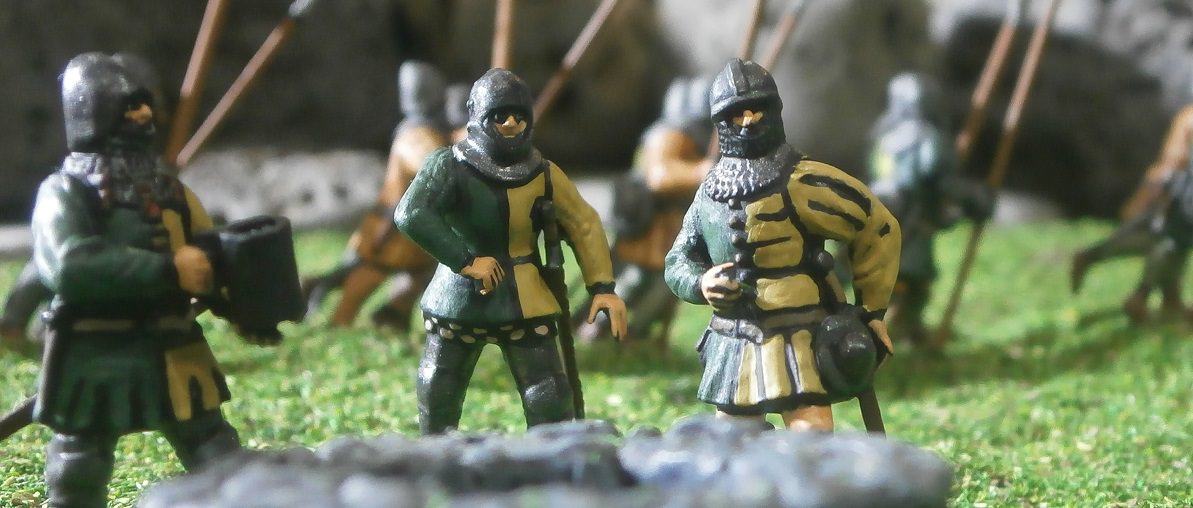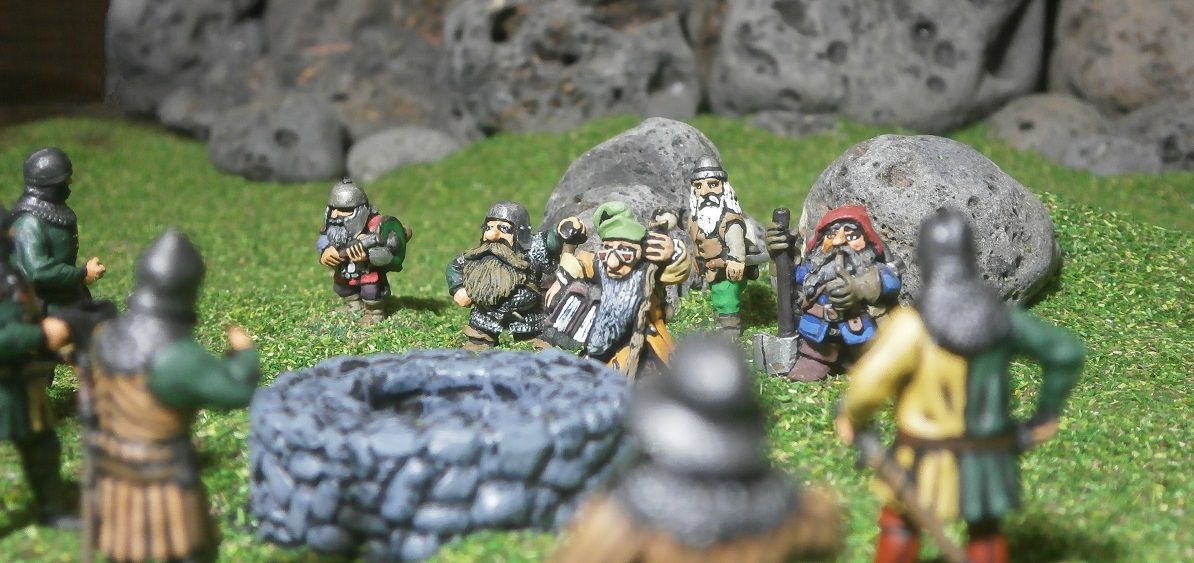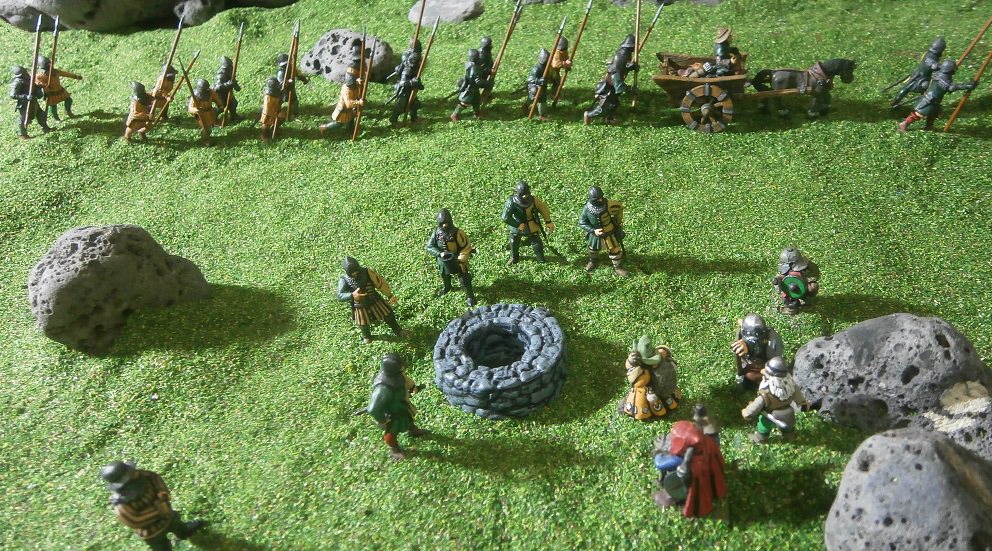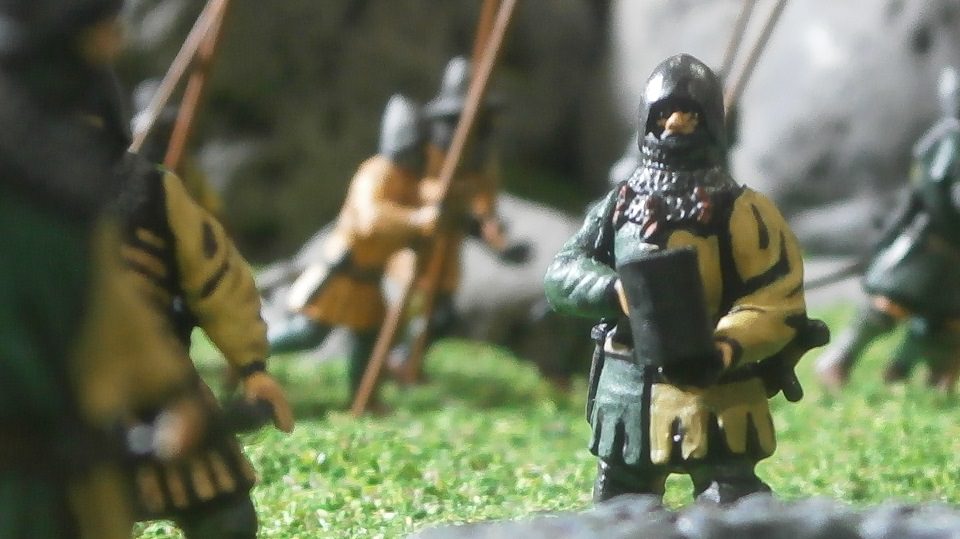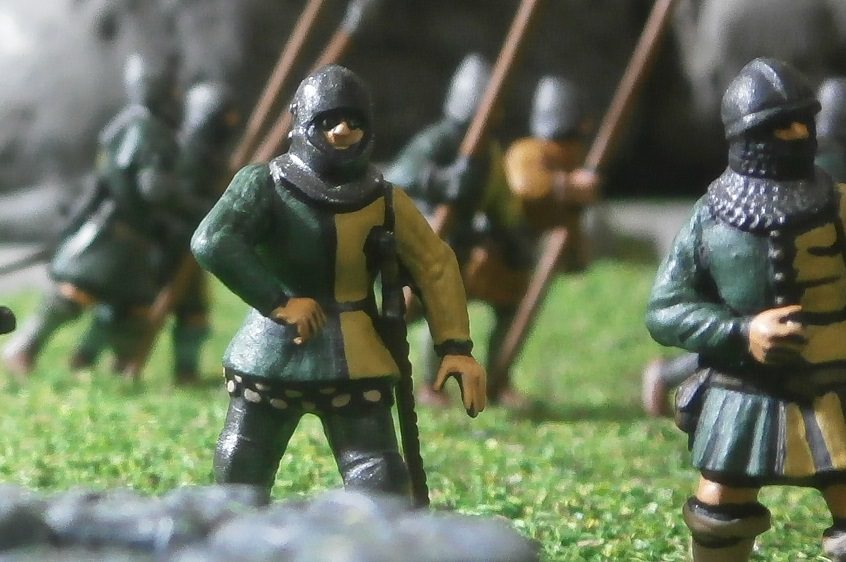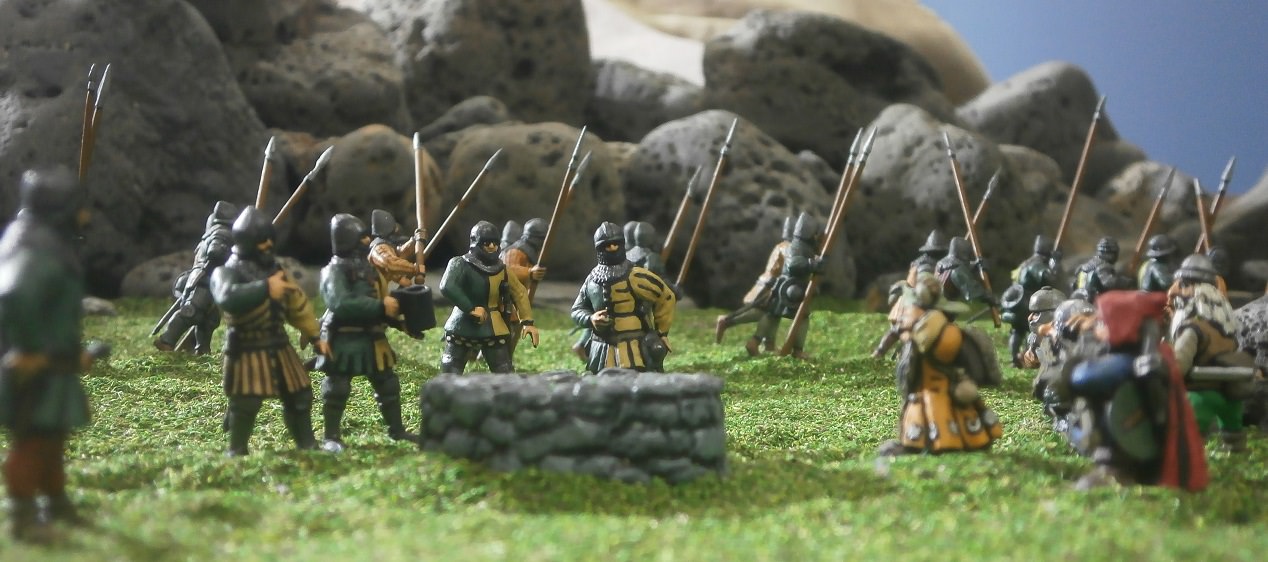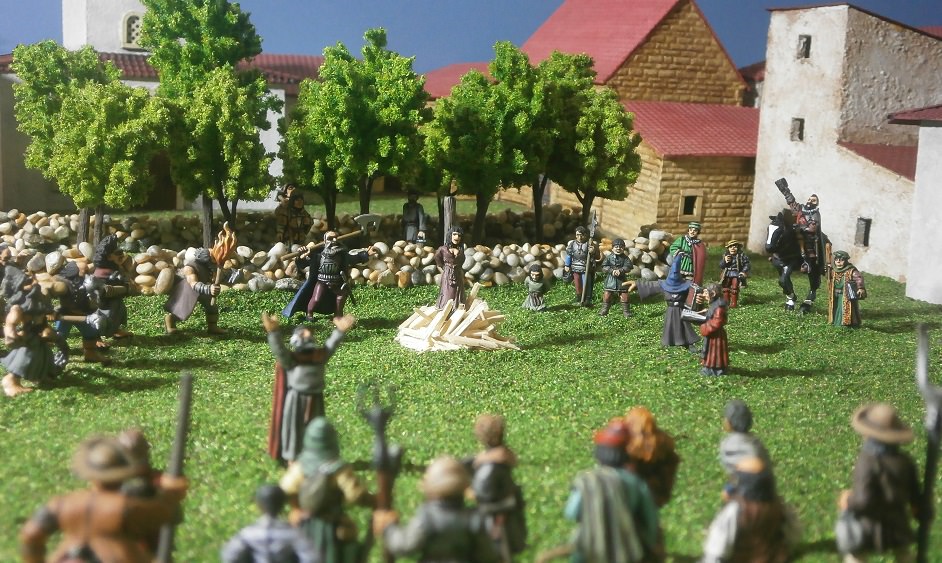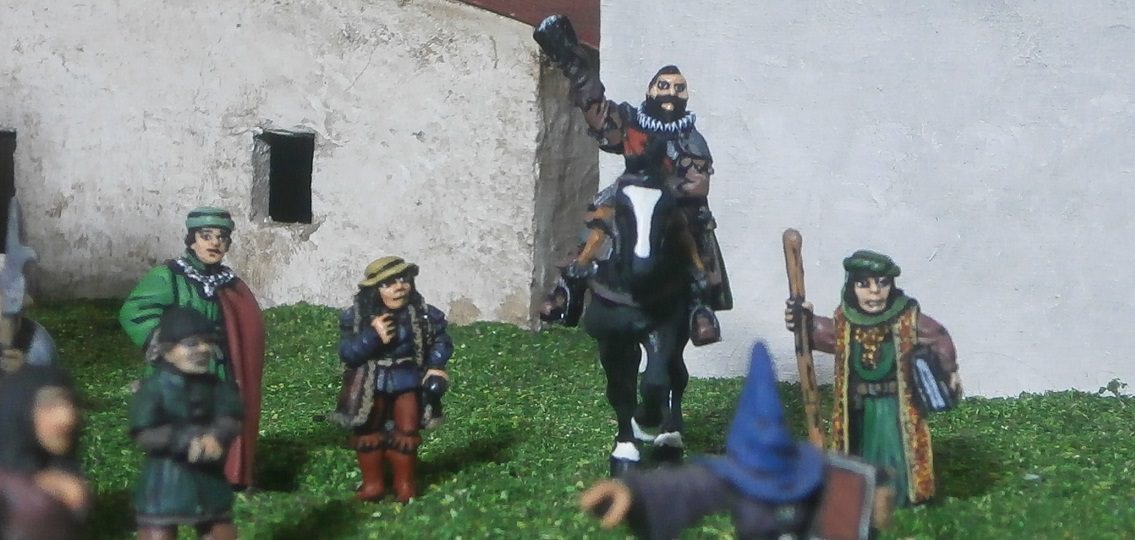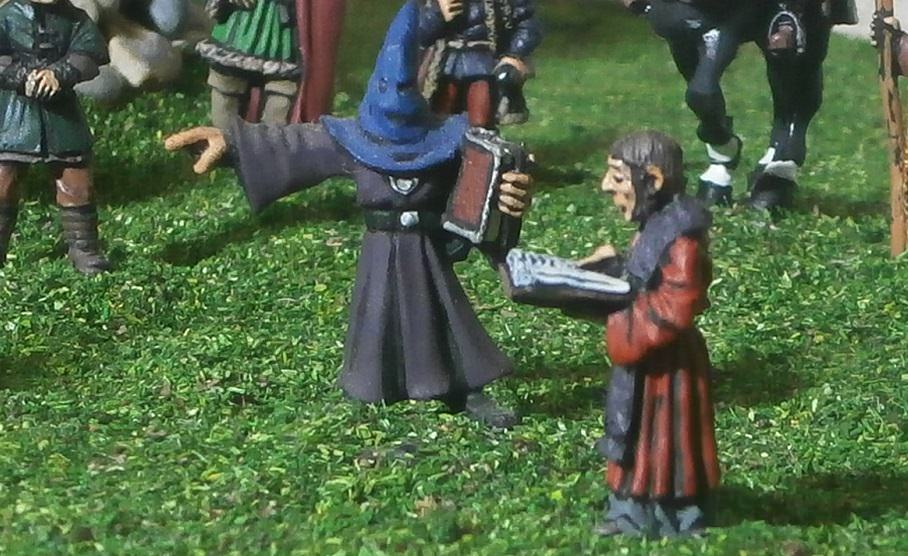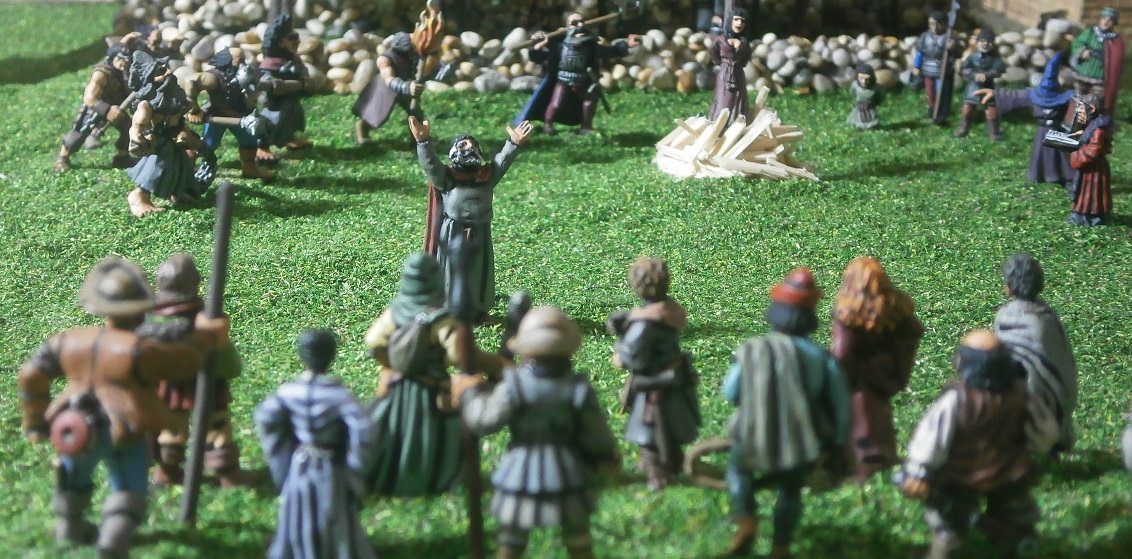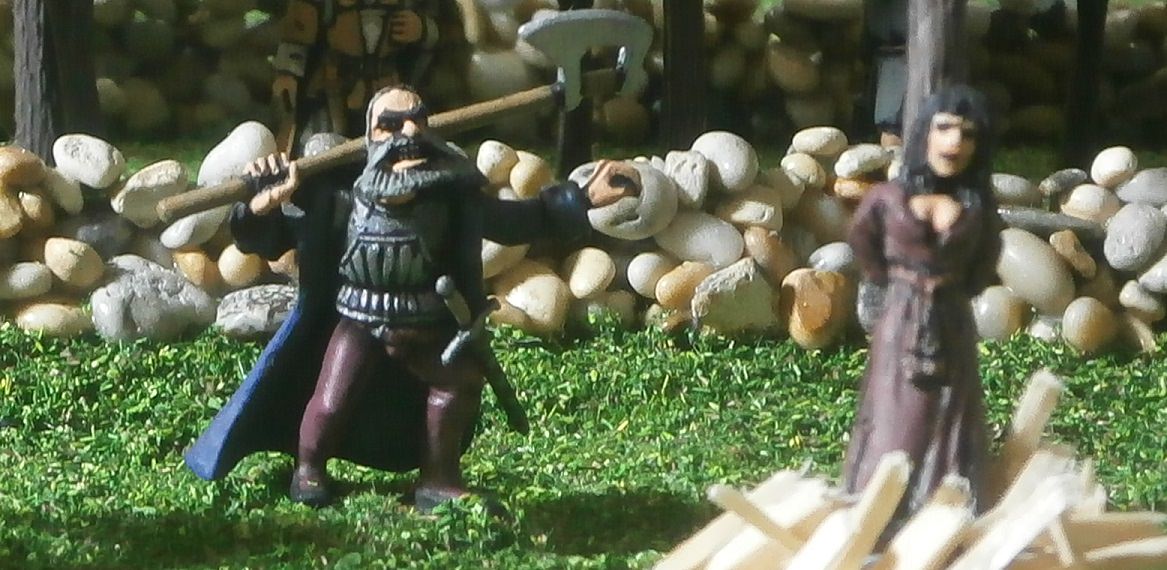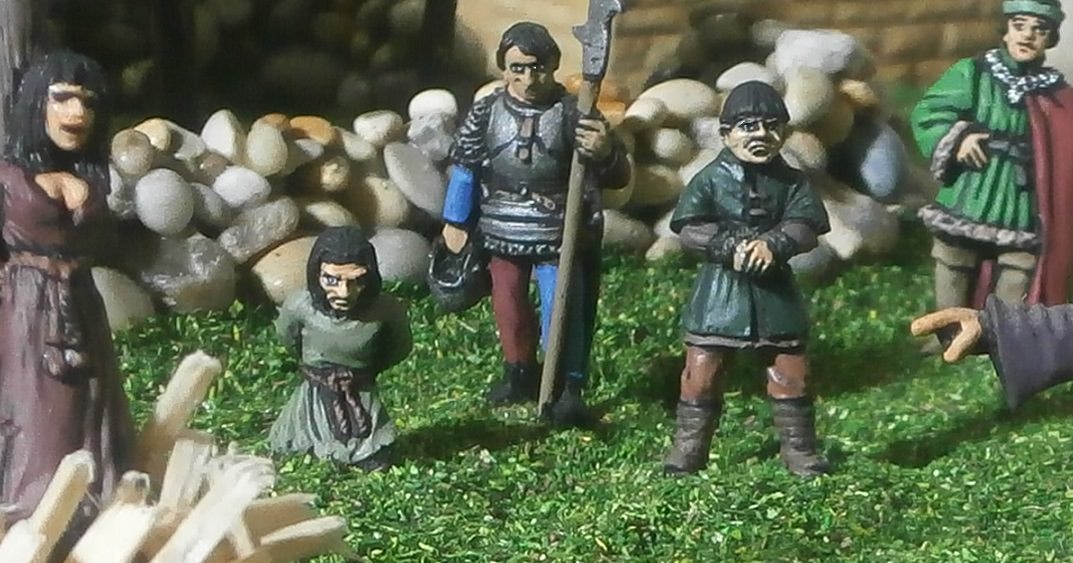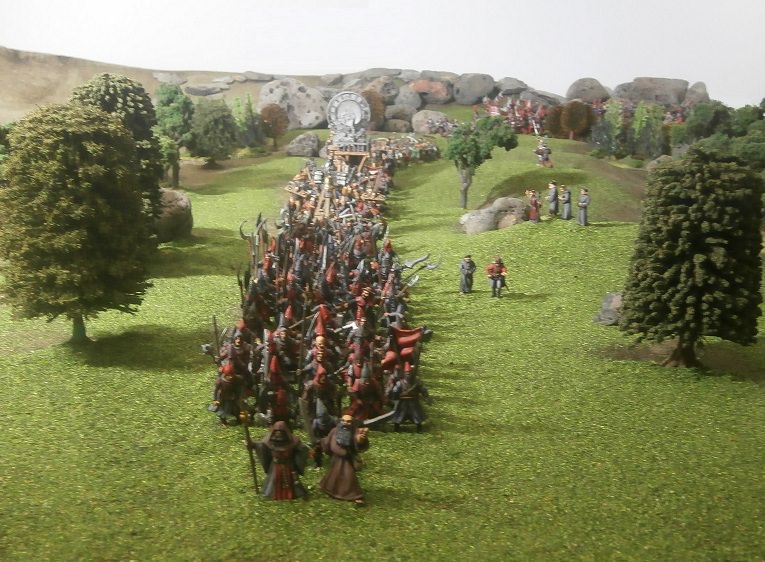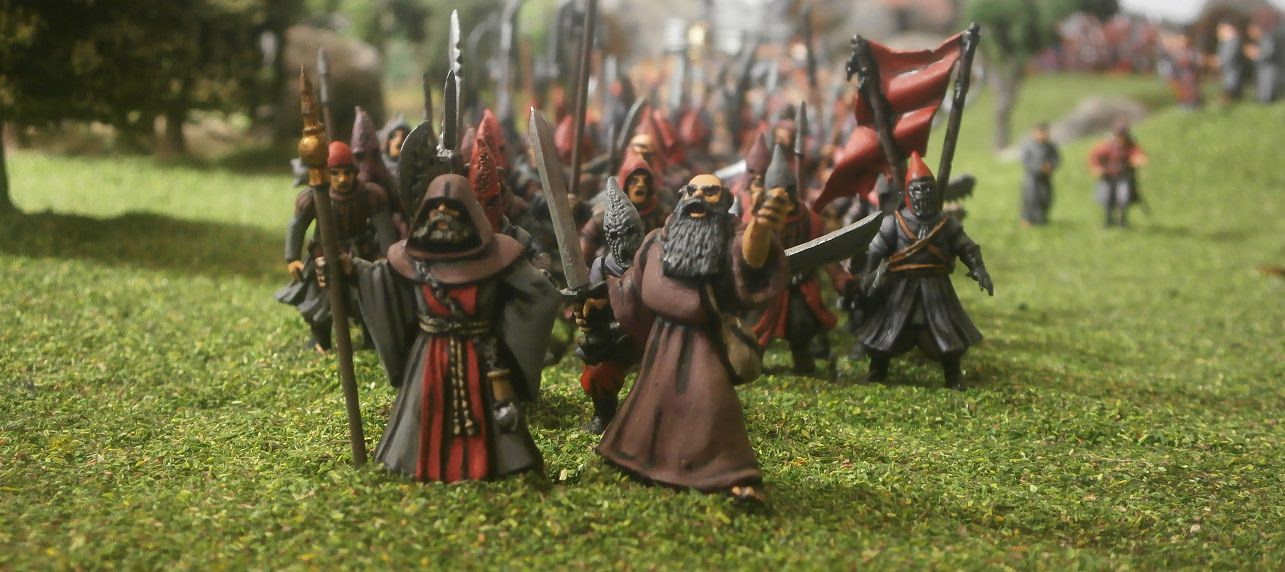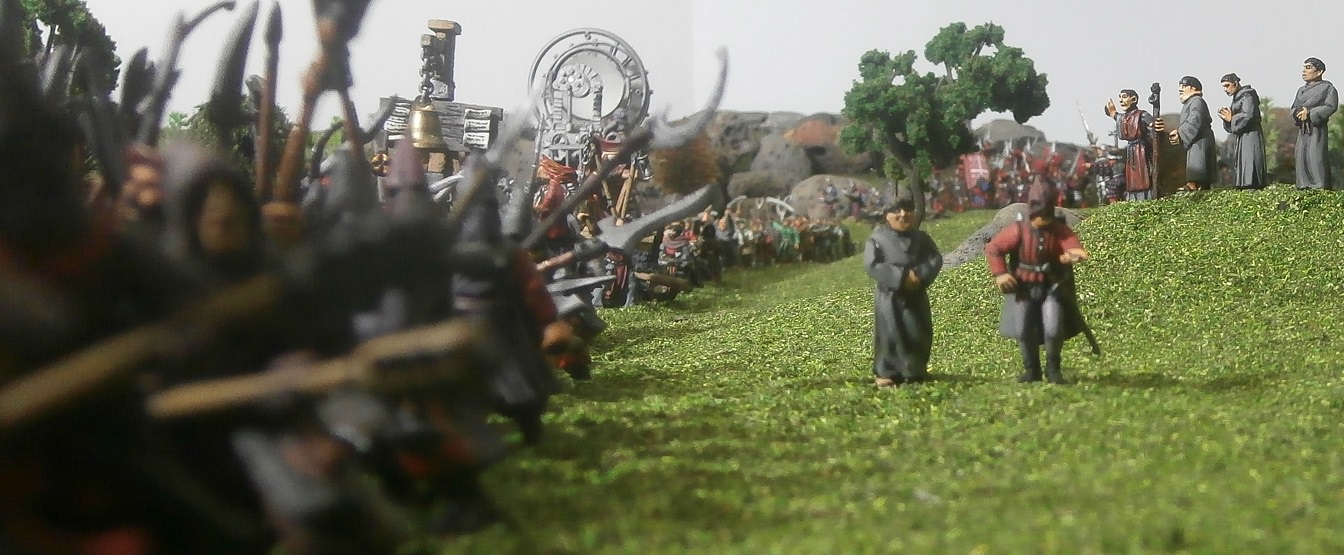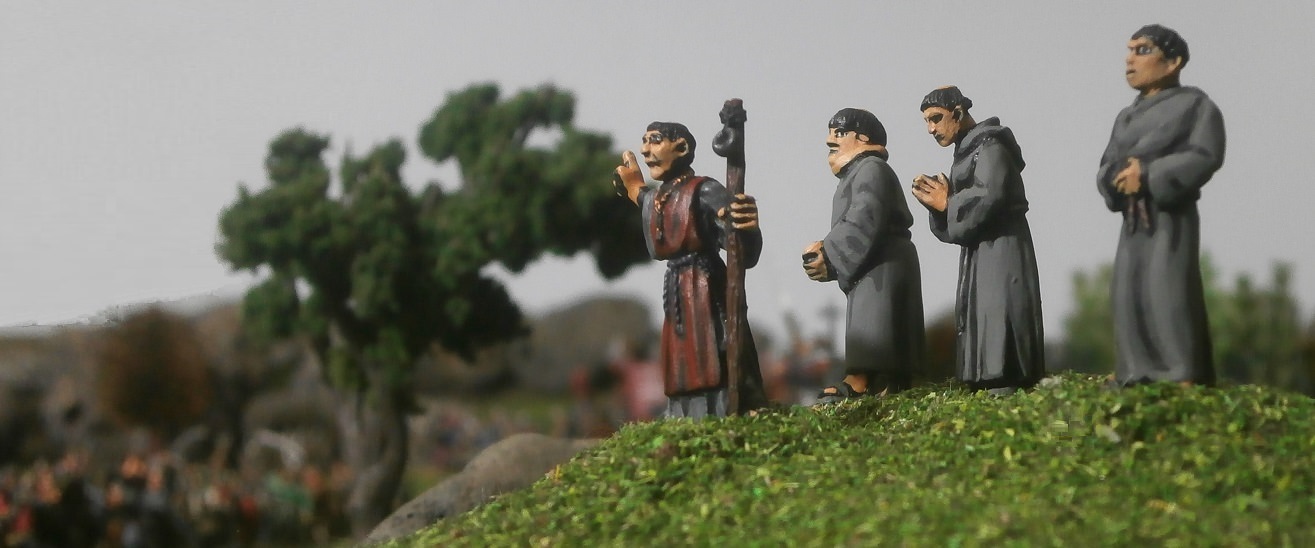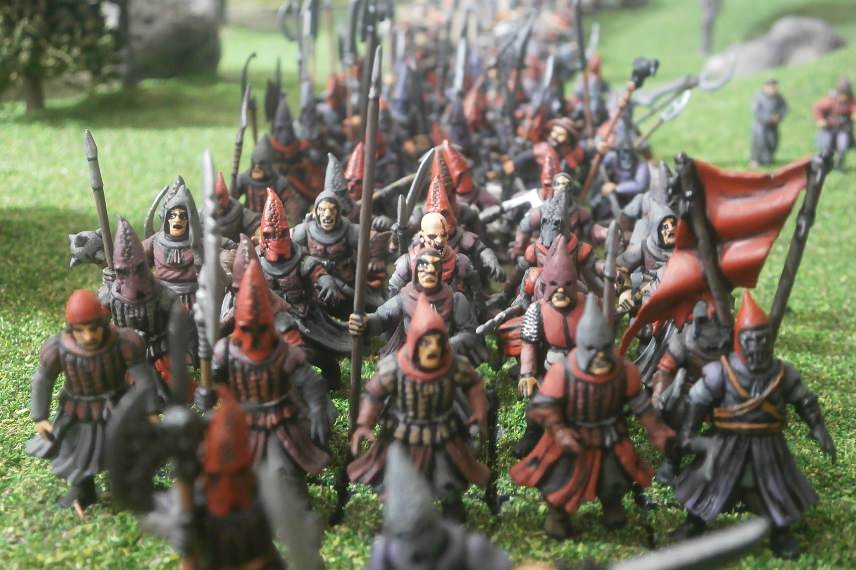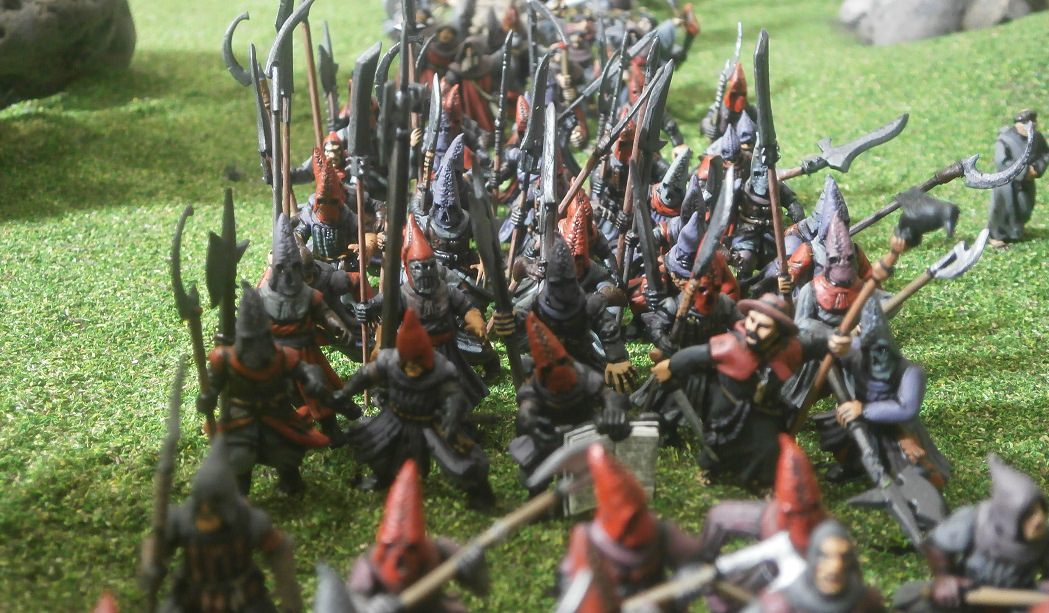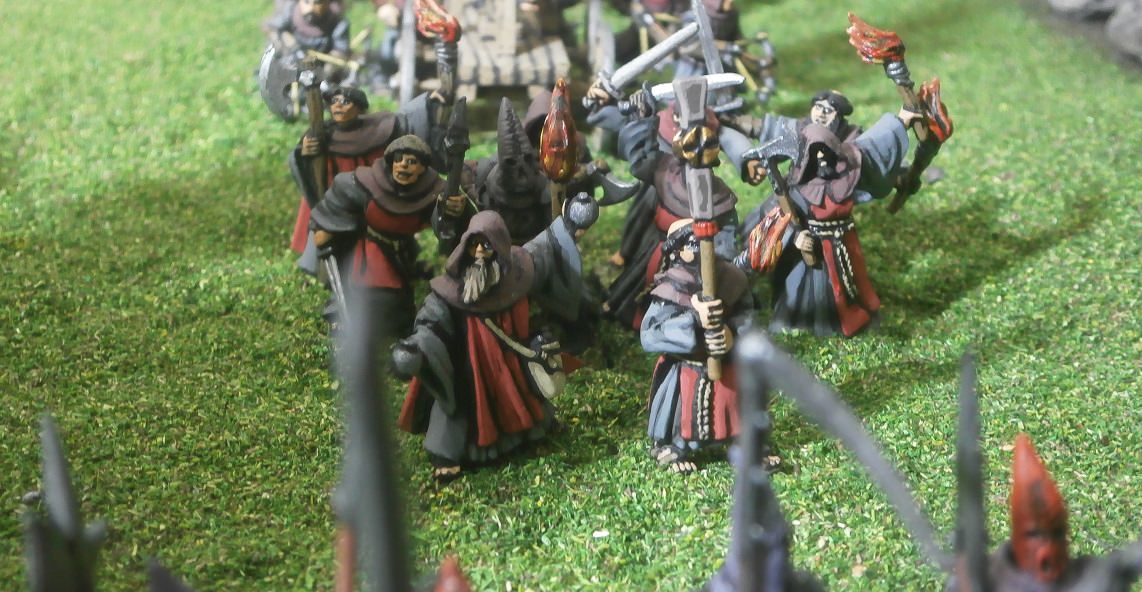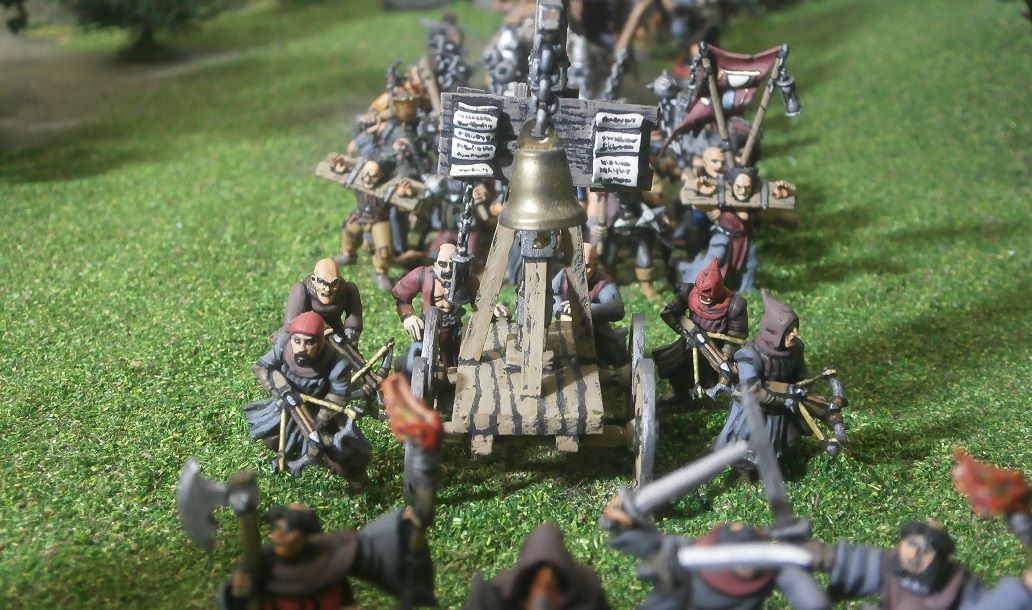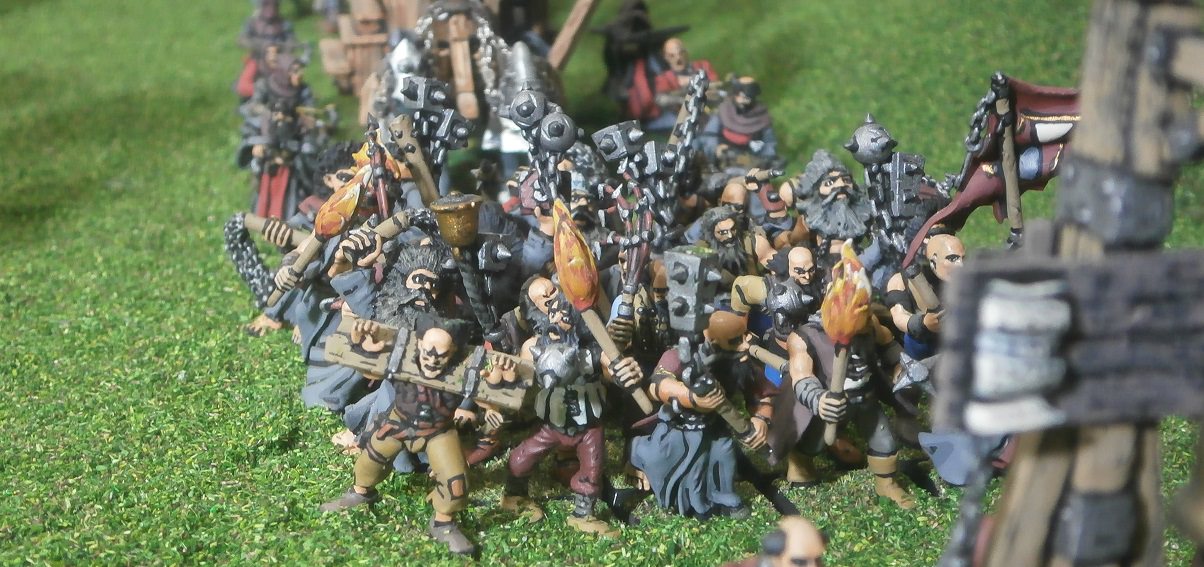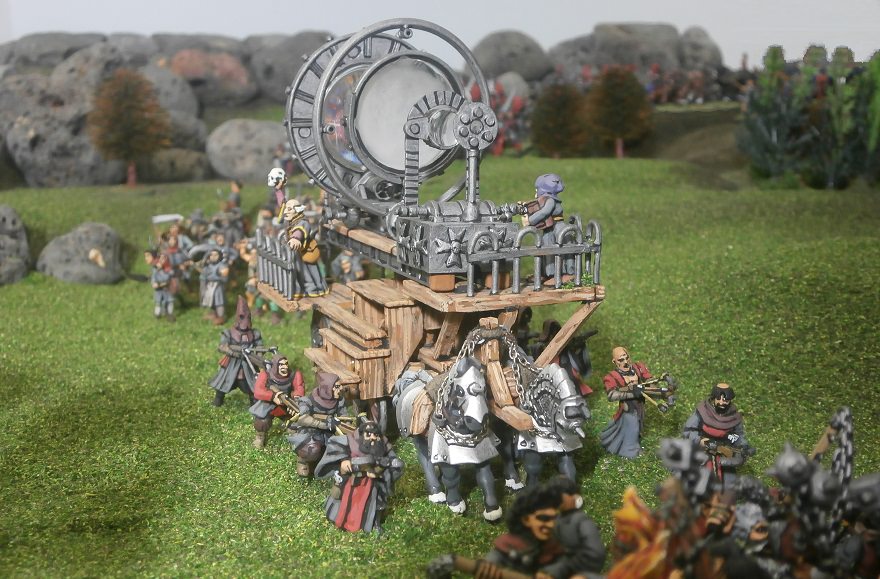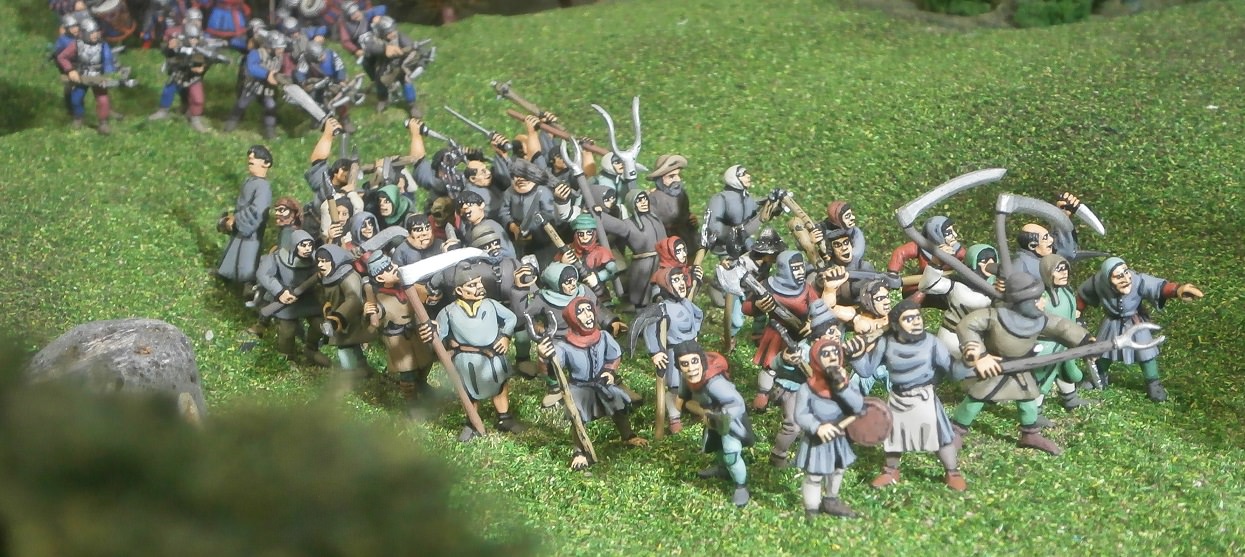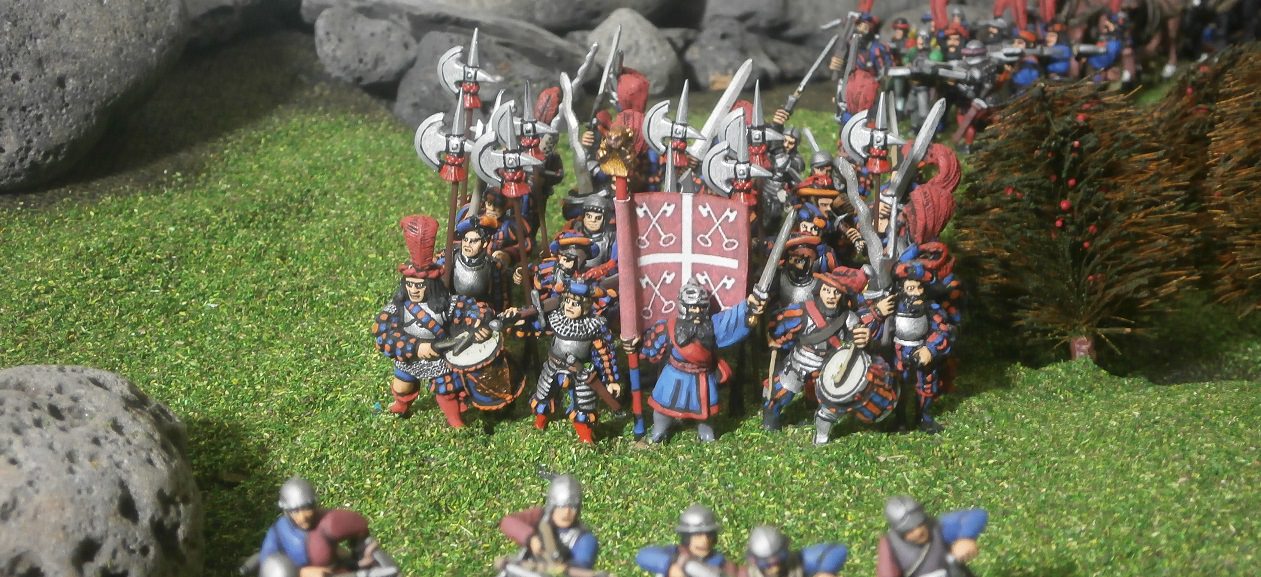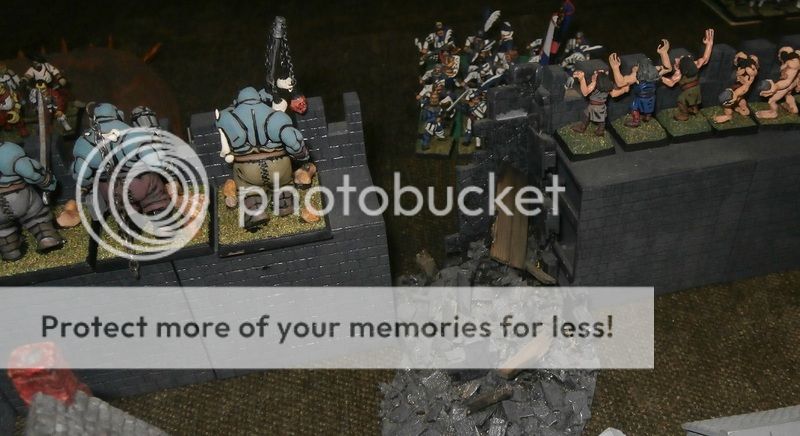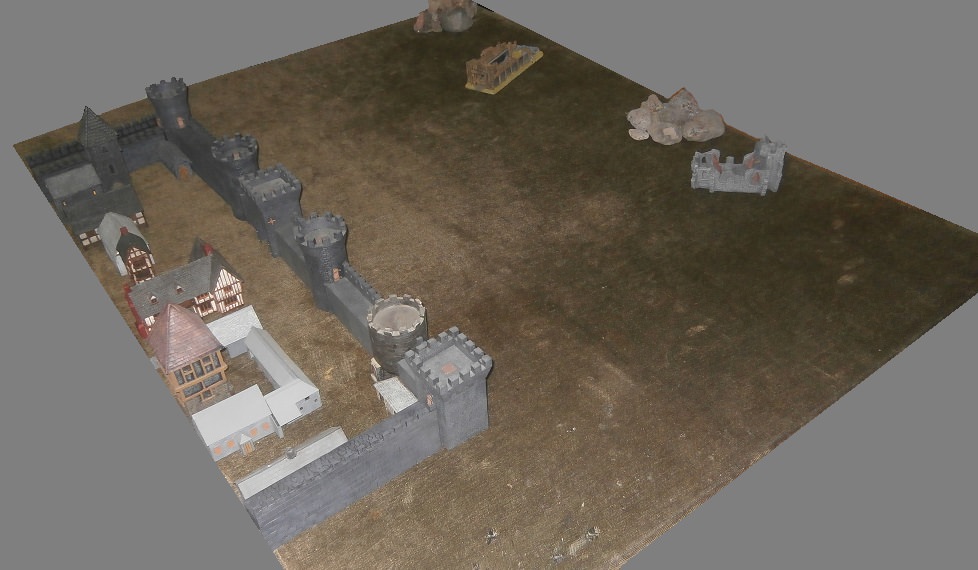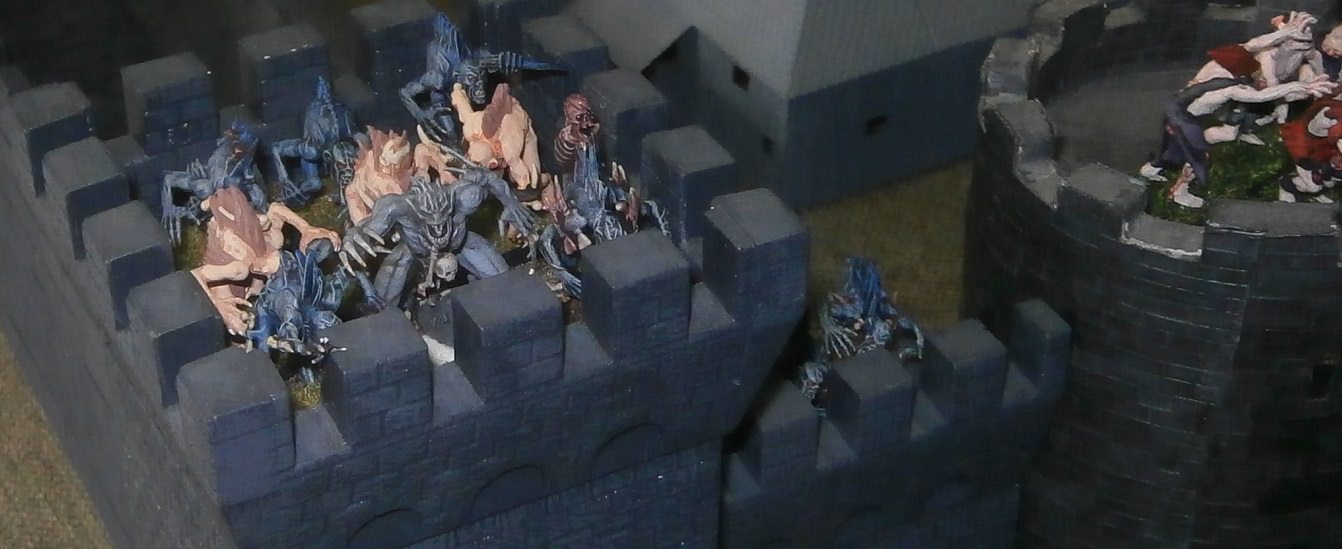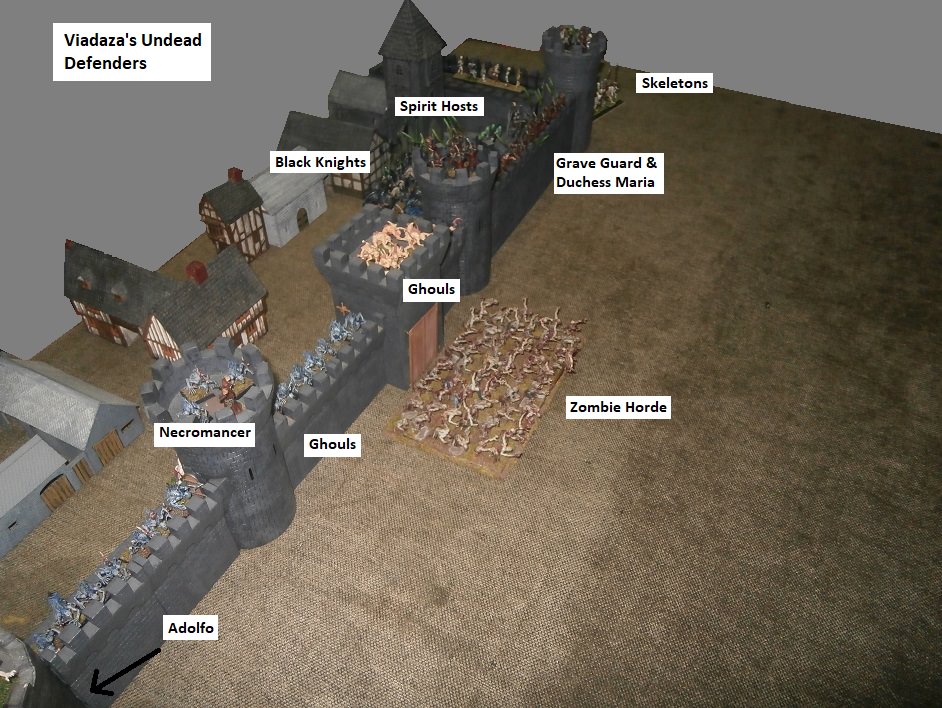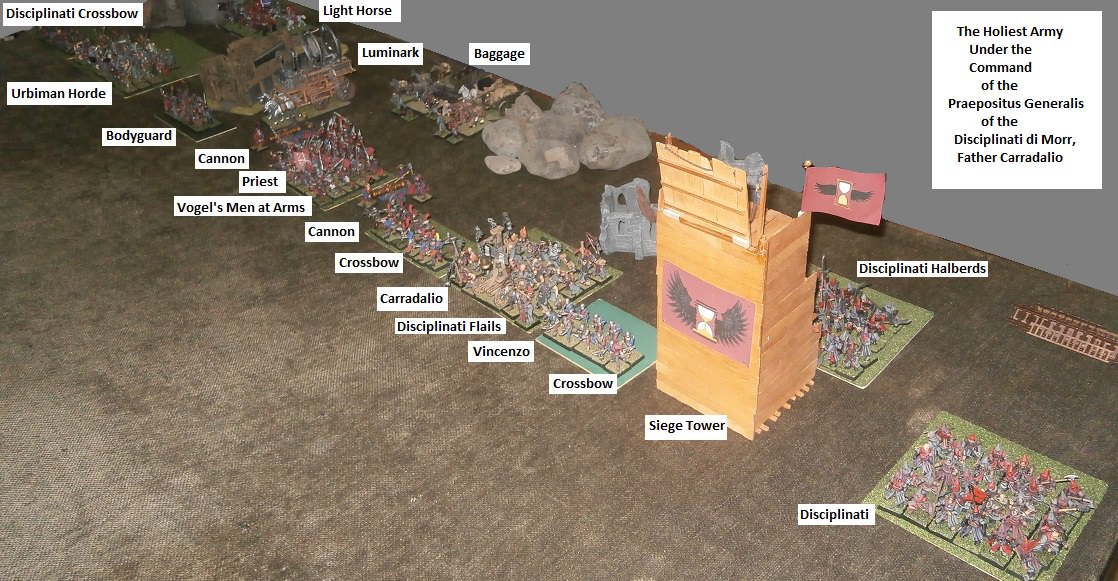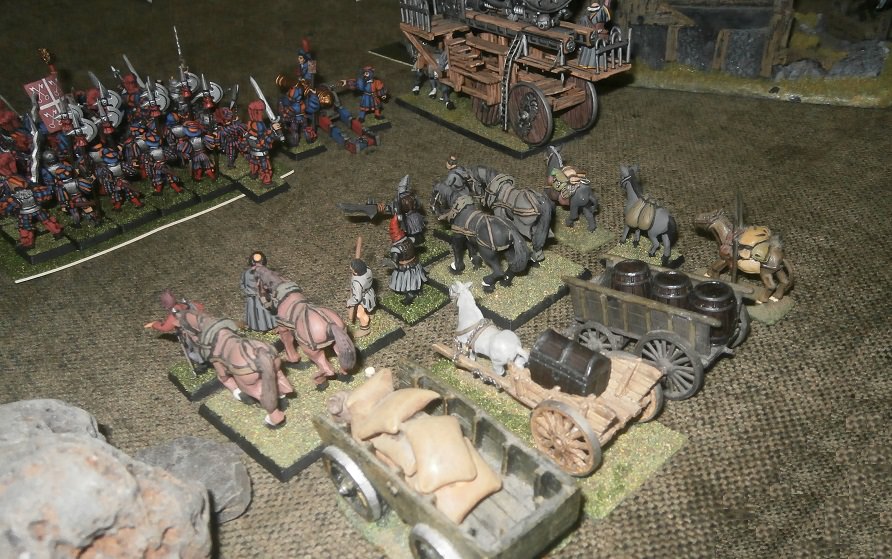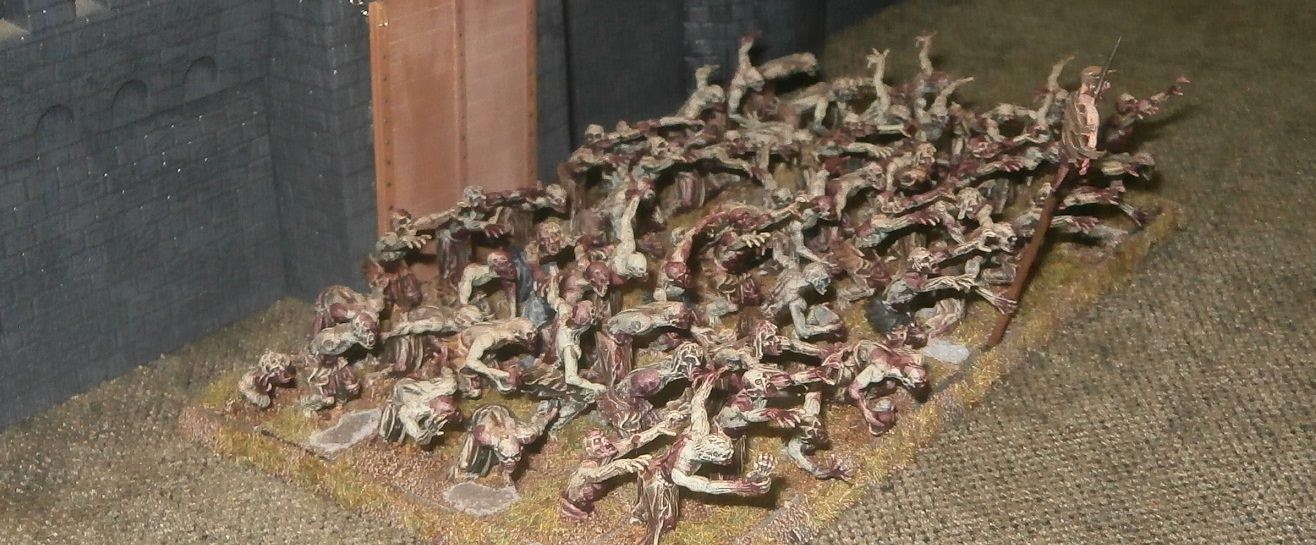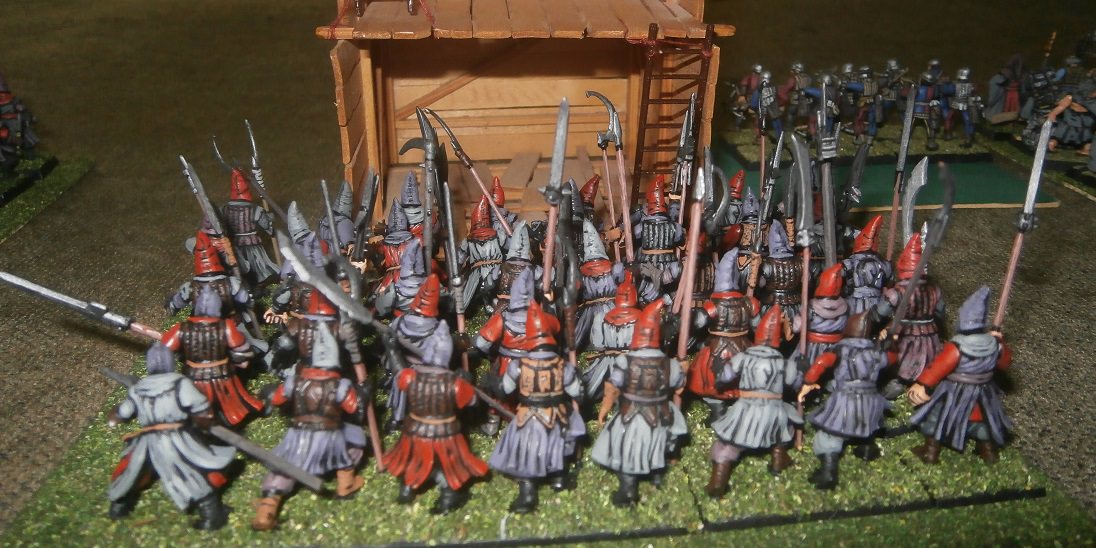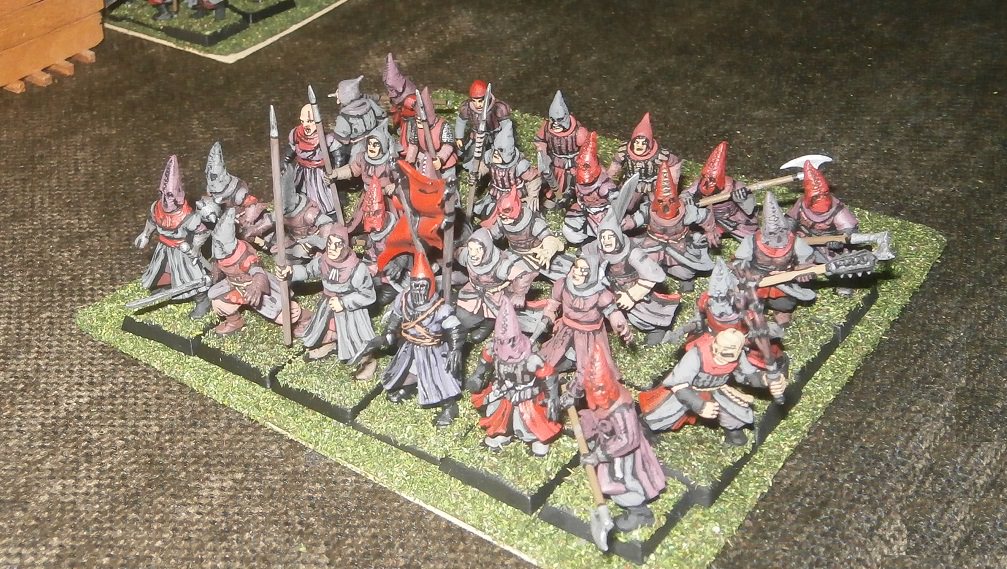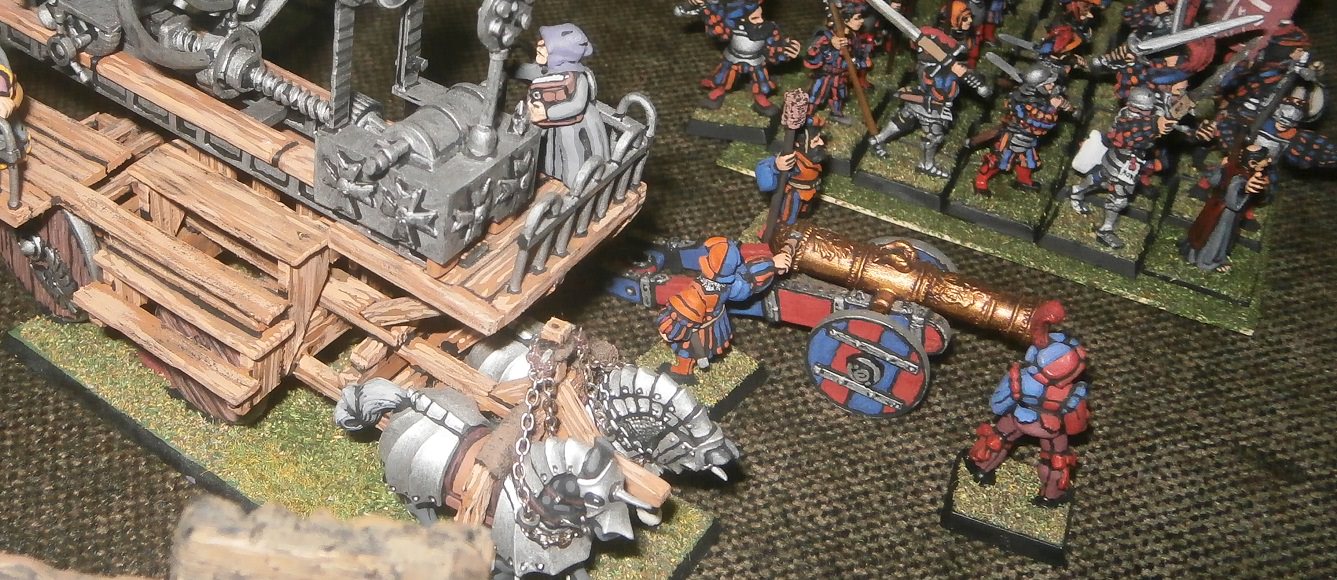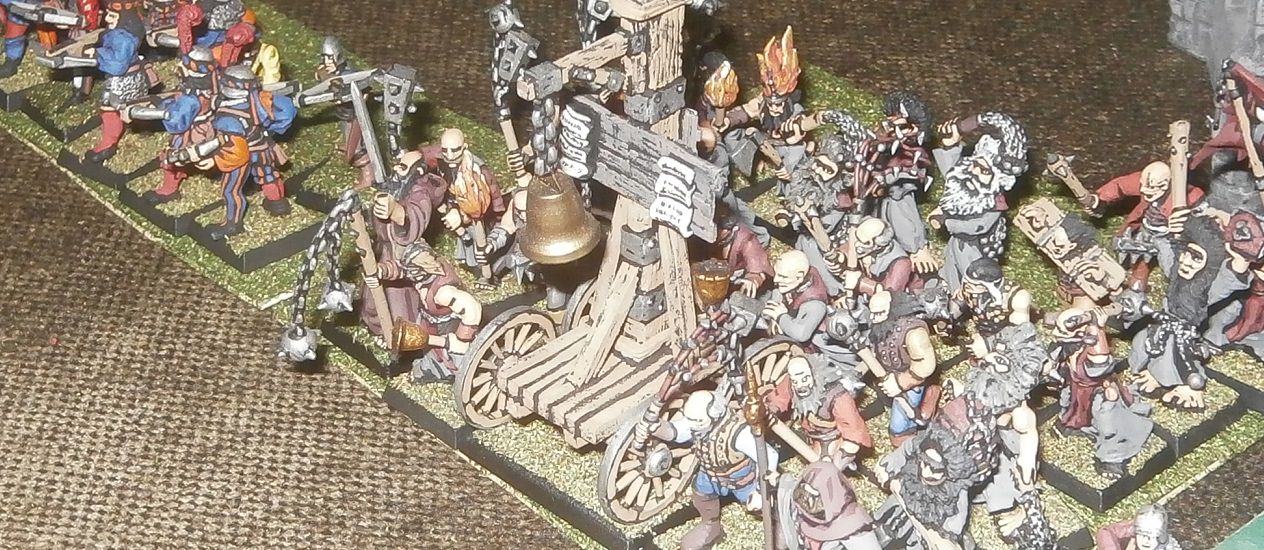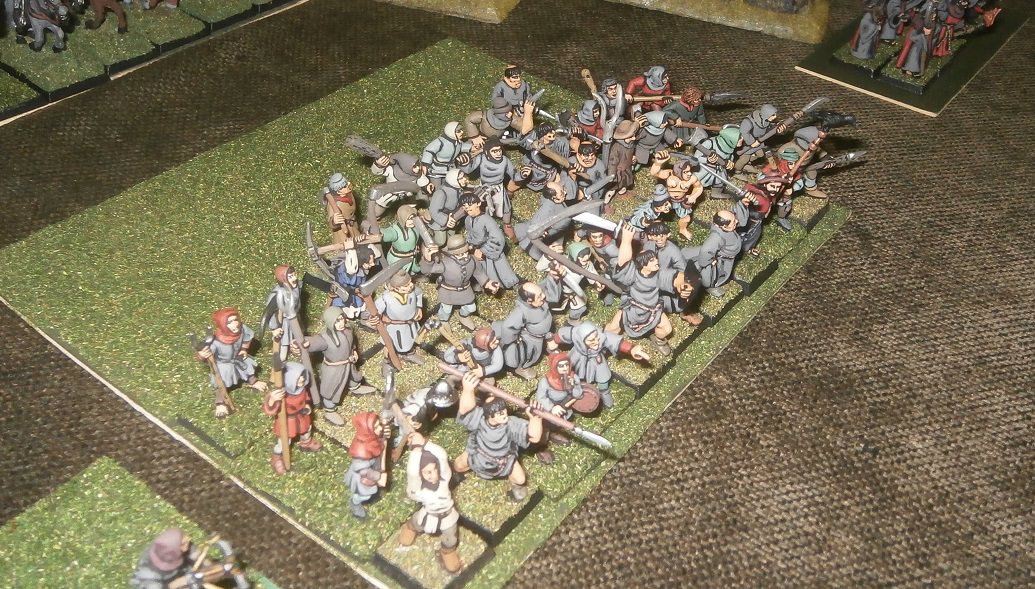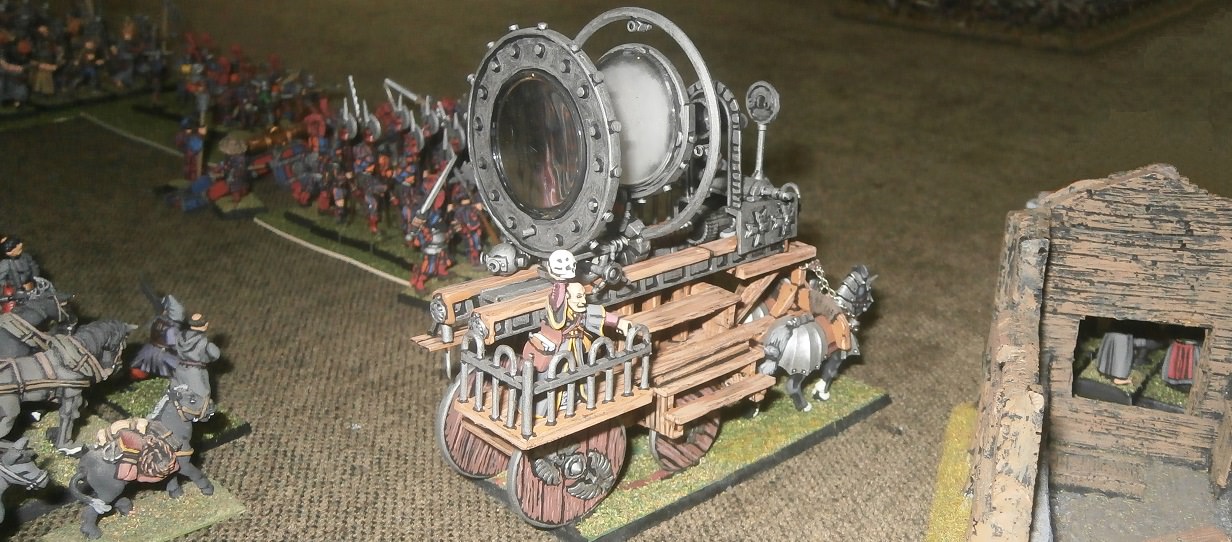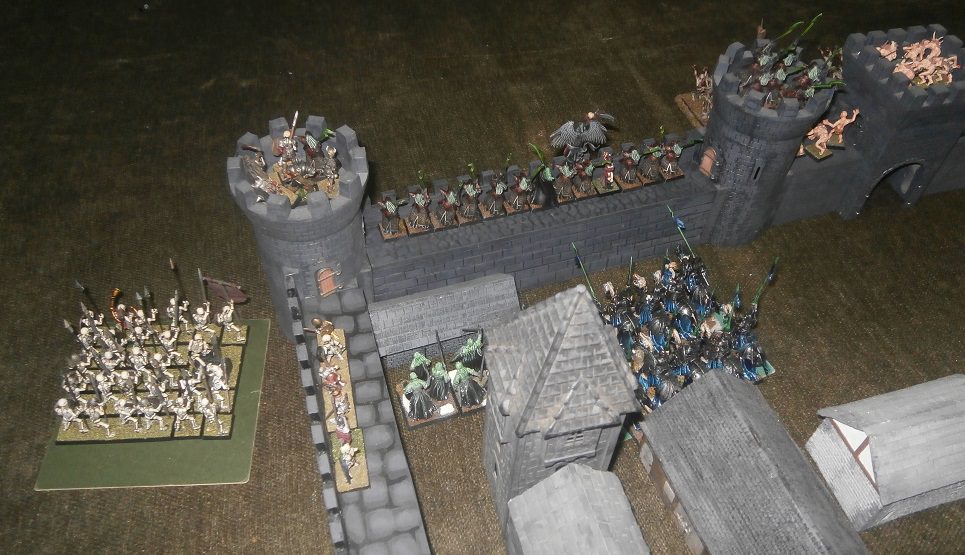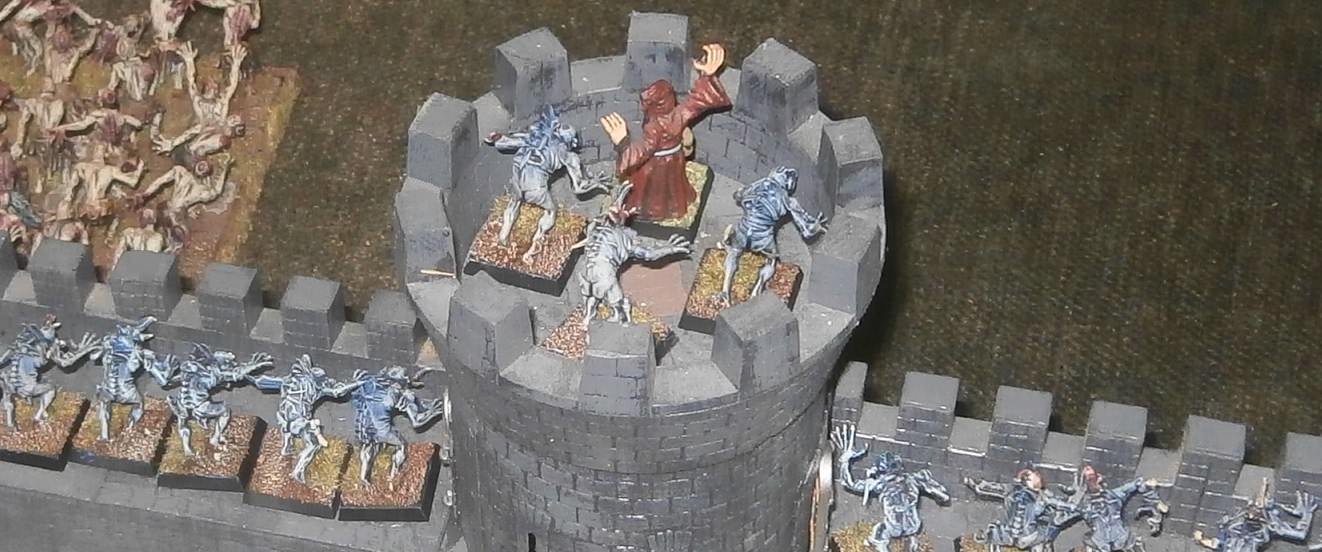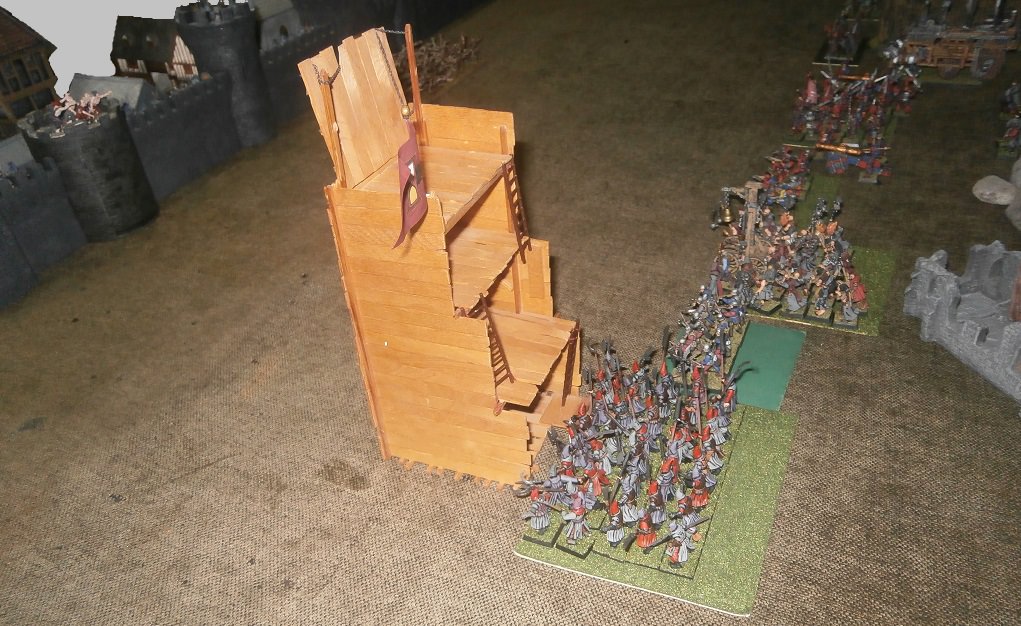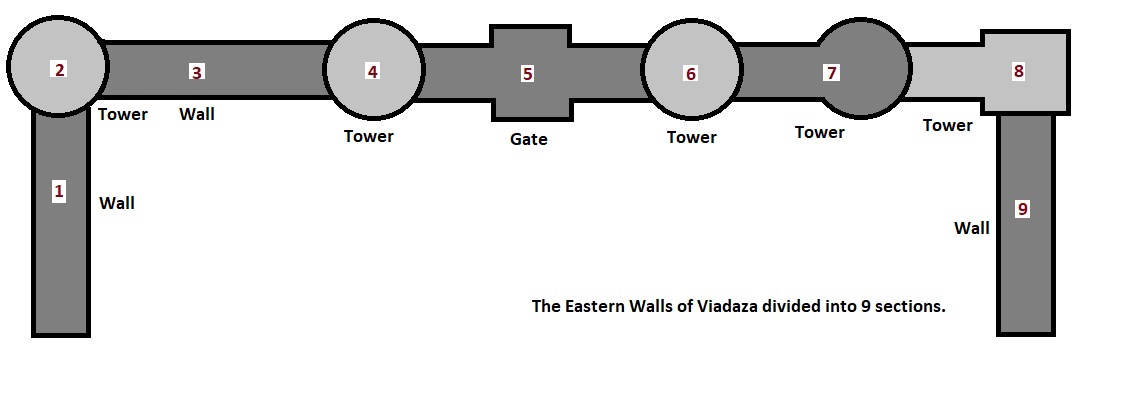Thanks, Land Annex and Outsider. Your kind words spurred me on a little faster with this next installment ...
-------------------------------------------------------------------------------------------------------------------------------------
The End of Spring, IC2403
5. Karak Borgo
King Jaldeog III of the dwarven mountain realm of Karak Borgo was not the most imposing of dwarfs. His beard looked the part, the very essence of a royal chin ornament, being suitably grey and cultivated to a width almost twice that of his head. Not that his head was small, but a size perfectly satisfactory for dwarven royalty. In particular, his nose could hold its own, a proboscis to be proud of, which indeed he was. It was the rest of him that let things down, for he was almost as short as a full-grown dwarf can be (if such backwards reasoning makes any sense), making his companion, his chancellor Obor Darkforge, seem quite massive in comparison. Even seated upon his throne, which raised his majesty’s feet a good foot and a half above the ground, his head was no higher than Darkforge’s.
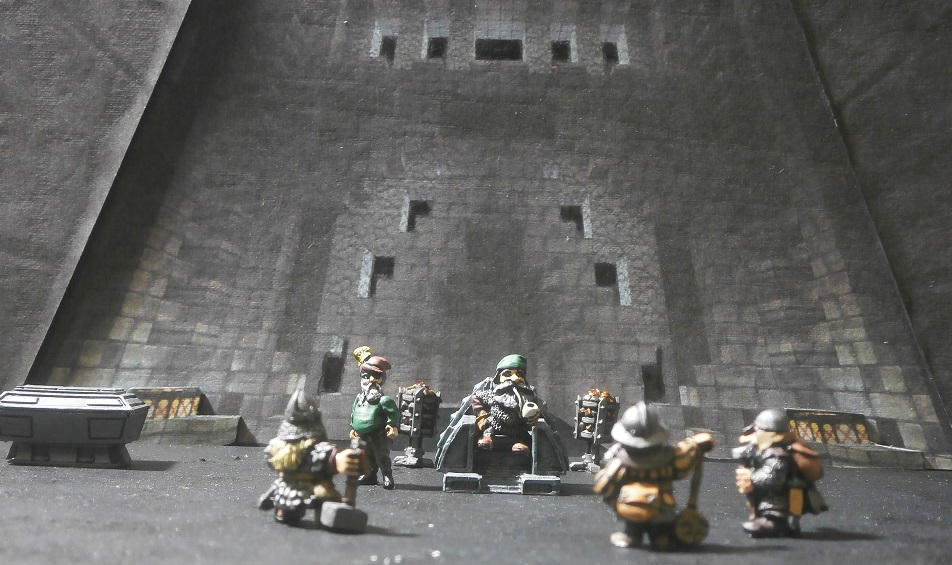
Perhaps this was why Jaldeog favoured somewhat humble attire, unlike most other dwarven monarchs? No golden crown for him, nor even a horned-helm edged with silver filigree. No armoured plates of engraved mithric, nor even a cloak trimmed with the shaggy fur of some legendary beast. Instead, upon his head he wore a simple cloth cap, and his armour was an entirely unadorned mail shirt. Did he believe he would look ridiculous in the garb of a hero? If it were ever possible to encounter him alone upon a mountain path, a stranger would presume him to be a mere old soldier, and of the lowliest kind. As he himself was fond of joking, he was not mutton dressed as lamb, but lamb dressed as mutton.
Two braziers smouldered behind him, the warmth of which gently penetrated his stone throne, warming his royal arse. He fiddled with his pipe and belt bag of tobacco, both being companions even more constant than Darkforge. Before him stood his two most important thanes, Asgrod Steelshaper and Narhak Thundersword, and the master of the watch, Vagroth Ashhelm. Chancellor Darkforge had summoned them to be questioned concerning matters military and political, especially the progress of the plan to re-open the iron road trade route by defeating the wizard Lord Niccolo of Campogrotta and his army of ogri.
After a sniff, a cough, and some more fiddling with the spent ash in the bowl of his clay pipe, the king eventually spoke.
“The Bretonnian. Let’s start with him, eh?”
Vagroth, Master of the Watch, answered. “My liege, word has come concerning the force he commands. As you yourself suspected, it is not impressive.”
“Nor is his claim to Campogrotta,” said Asgrod, Thane of Deephall.
“True,” said the king. “But if the king of Bretonnia has given his blessing, that lends respect to his name in the realms of men. I won’t go to all this effort only to have the humans entangled in a civil war afterwards. As long as he’s a legitimate contender, I’m happy to have him as an ally.”
“The Ravolan way has always been that might is right,” said Vagroth. “They fight tourneys to decide upon a new lord. Baron Garoy is not what anyone would call ‘mighty’.”
The king gave a sound, half snort, half laugh, dropping some of the tobacco he had been stuffing into his pipe. “He doesn’t have to be mighty. Not if there’s no-one else to fight the tourney. No-one of consequence, anyway. Once Ravola is taken, he’ll rule long enough to make a start putting things back the way they were. That’s all we need.”
“He promised much more, my liege, than what he brings,” said Vagroth. “He has merely a handful of mounted men-at-arms, the rest of his company being only the Brabanzon mercenaries we paid for, archers and spearmen, a villainous looking lot too.”
“We don’t need him to bring a big army. Our own gold has bolstered his meagre force sufficiently. Besides, we have even more mercenaries - a whole army of them!”
King Jaldeog fixed his eyes on Narhak, Thane of Dravaz, who was now standing by the thane of Deephall. Both thanes held hammers in their hands, the first a warhammer of iron, the second a large mallet of oak. The latter was an ancient and magically blessed artefact gifted by the elves of Tettoverde Forest to Narhak’s father during an old alliance against the Skaven. It had no runes inscribed on it, nor a scrap of iron, steel or even brass about it, and yet it could break stone, and had once killed three goblins with one swing. The fact Narhak was proud to bear an elven-made weapon marked him out as unusual amongst dwarfs. He was stubborn enough to ignore the petty slights – apart from direct insults of course. His unusual link to the elves was the very reason he had been ordered to take command of affairs to the south.
“What news, Narhak, of the Compagnia?” asked the king. “Are they bringing what they promised?”
“They have crossed the sea,” answered the thane, “and landed all that was promised, perhaps more. The crossing was not easy, for the ships’ captains are somewhat reluctant to venture into those waters, what with the war against the zangrunaz duchess, and more sightings of thagorakki vessels.”
“Wisht, Narhak,” ordered the king. “I’ve enough to think about with these ogri. Let’s deal with one problem at a time, starting close to home, eh? We can contend with the undead abominations and the scuttling horde later.” The king seemed to have forgotten his pipe. “Will the mercenaries reach Campogrotta before Razger returns?” he asked.
“They’re upon the march, by way of Scorccio,” said Thane Narhak. “I know not how they intend to get past the zangrunaz’s forces. I suggested they use the same way Boulderguts used when travelling south. He avoided entanglement with the undead.”
“Ah,” said Darkforge, “but that might be because of an alliance between the zangrunaz duchess and the wizard lord.”
“That may be, but the route will keep them some distance from Ebino,” said Narhak. “Granted, it will take them longer to skirt wide enough, my liege, but I reckon they can get here unmolested. My own rangers report it is very quiet along the Tarano and the Bellagio, and both rivers are low for the time of year. Tettoverde is quiet too. I suggested to the rangers that they might lead the army through the forest as there is an ancient path from where the Bellagio bends north up to Tarano Keep.”
“Well and good,” said the king. “But I ask again. Will they get to Campogrotta before Boulderguts?”
Narhak hesitated, so it was Thane Asgrod who answered,
“No-one can promise that, my liege. The news from the south is confused. The ogri appear to be almost everywhere, the zangrunaz everywhere else. But by your leave, my liege, might I suggest that perhaps the mercenaries do not need to beat Boulderguts in the race? From all the reports it seems the ogri have rampaged far and wide, burning a wide swathe of destruction upon their … what was the word Baron Garov used … ‘chevauchee’, aye. Boulderguts has done this without reinforcements from Campogrotta. If any such had left the city our rangers would have seen them – the ogri are not exactly quiet, nor sneaky. And no more ogri have come through the Appucinni passes. Boulderguts has fought several battles, no doubt enriching himself considerably in the process, but each time he fought his force must have dwindled. It is reported his hireling, Mangler, is dead, and both ogri armies have been severely mauled. Between our own warriors, the Condottierri Mazallini’s soldiers and whatever Baron Garov brings, we can surely defeat whatever force he limps back with. And if …”
“Ah,” interrupted the king, prompting Asgrod to fall silent, “yet is it certain we can defeat both him
and the forces his master Lord Niccolo has at Campogrotta?”
At first, no-one spoke, and the king took the opportunity to put his pipe to his mouth, having forgotten it was not yet lit.
“Can we not destroy them piecemeal, my liege?” asked Asgrod.
“Aye, likely so,” said the king somewhat nonchalantly. “That means we must ensure they do not join forces.” He held his hand to his mouth, as if pondering, but also perhaps signalling that the others should remain silent as he did so. “Best to begin with Boulderguts’ army. Defeat him first, at some remove from Campogrotta. If instead we besiege the city and the work becomes protracted, that could give bloody Boulderguts all the time he needs to return. Then we’d face them all, front and rear. Defeat Boulderguts first and we shall have all the time we need to take the city.”
There was nodding and a murmur of agreement from all those gathered. The king took the opportunity to rummage for more tobacco from his pouch and to further pack his pipe’s voluminous bowl. He may have been small for a dwarf, but he made up for it by doing nothing by halves. When he slept, he slept several hours longer than most. When he ate, he feasted upon sufficient to satisfy two. And when he smoked, he liked to send fumes curling into every nook and cranny of the hall.
At last, Darkforge noticed what the king was doing and stepped up to take the pipe to the brazier. While he did so the king leaned forwards upon his throne and asked,
“Besides what’s at Campogrotta, what forces does Lord Nicolo have elsewhere?”
“Nothing much, my liege” said Vagroth, “and that only in Ravola.”
“Are you certain?”
“Those few Ravolans who escaped into the mountains looking for succour …”
“Which alone shows how desperate they were!” interrupted Darkforge.
“Aye. Well,” continued Vagroth, “those that did told us there are very few ogri at what remains of Ravola. My rangers report that the ogri ate almost everything, man and beast, and stole all else of worth.”
The king was nodding. “Which would be why there’s little in the way of forces there. Why bother to garrison in strength if there’s nothing left to guard?”
“It is not entirely abandoned,” said Vagroth. “I reckon they left a company or two simply to keep an eye on the Nuvolonc Pass.”
“Didn’t they destroy the fortress at Maratto?” asked the king.
“They did, my liege, so they now garrison Ravola instead. I have warned Baron Garov, and ordered my rangers to bring him another way. Should be easy enough in summer. They could probably defeat what few ogri are there but then we would lose the element of surprise.”
Again the hall fell quiet, as King Jaldeog drank in the first pull of smoke from his pipe. Having released a pleasantly coiled cloud, he asked,
“If there’s an alliance between the zangunaz duchess and Lord Niccolo, then Boulderguts might be reinforced upon his return journey. Or perhaps the wizard lord will call upon his allies to relieve him of our seige?”
“My liege,” said Darkforge, “would even he invite the likes of her foul followers to his realm?”
Vagroth raised his hand and spoke.
“Some say that Lord Niccolo is a zangunaz himself, which is why he stays so hidden, and why he has lived so long. If so, he might have his own undead forces, and would not forbear inviting such into his realm.”
“As far as we know,” said Narhak, “the ogri and this zangunaz have not fought side by side before. The reports of their alliance are but speculation, never mind the claims that he himself is undead.”
“Aye,” added Vagroth. “That’s true. The ogri even fought against the zangunaz Adolfo at Viadaza.”
“That may well have been trickery,” offered Asgrod. “Lulling their real enemies into a false sense of security, while they planned their great raid. If they had not been slaughtered by the army uprising at Viadaza, they most likely would have turned against their Reman ‘allies’, perhaps an act of assassination, or treachery at a crucial moment in battle?”
“We shall assume nothing,” said the king, authoritatively. “And we shall act quickly. Our warriors must be ready to march as soon as the Bretonnian arrives. We’ll march to meet the mercenaries, and if we cannot get to them first then we’ll pincer the enemy between us.”
There were ‘Ayes’ all around.

